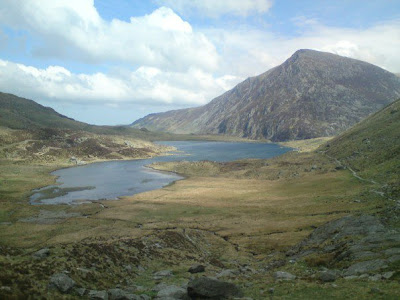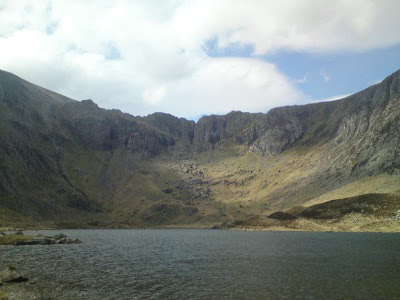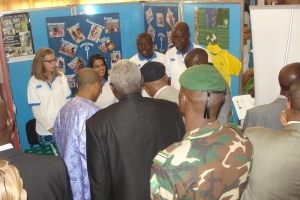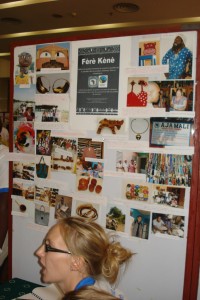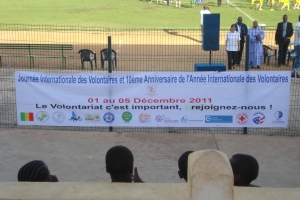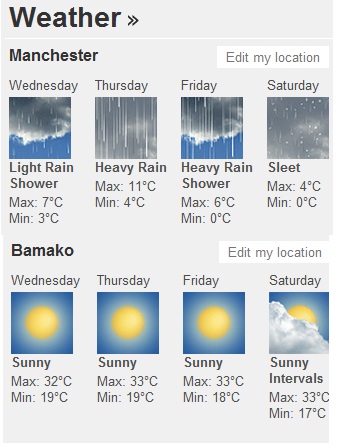I realise I haven't posted on this blog for a while, and that's for many reasons. For example:
1) I've been busy. Working full time and working weird hours does silly things to all of my free time!
2) I've lost all motivation and haven't really had anything interesting to say. Nothing I felt I could portray on here anyway!
Now however, I've realised I really miss blogging! Not just for other people to read (though it's a nice bonus if they do), but it's nice to have something to refer back to now and then. I don't keep a diary, and don't use Facebook as much anymore, so it's nice to have a record of what was going on in my life at the time!
Since June I've been working at a coffee shop in a hospital (not going to say where or I'd risk losing my job!) and I hate it. I don't mind the job as such, but I'm expected to do a lot more than I actually get paid for and volunteer to do more on top of that. Again, I don't mind that so much; that's always been the case everywhere I've worked. I'm an awful mixture of being incredibly reliable, desperate for money and I have a bad case of not being able to say no to anything. An employer's dream, but my nightmare.
I've got a bit better recently though, and I wouldn't mind that if the work environment was nice, but it's really not. It's just like being back at secondary school; everybody there is two faced, bitchy and really immature. They slag everybody off behind their backs but are as nice as pie to their face, and EVERYBODY knows everyone else's business. Now I couldn't hack that in high school, never mind amongst grown adults, and it just makes it a really uncomfortable place to work; I don't feel like I can be friends with anyone, and to say I spend over 40 hours/week there I think that's a really sad state of affairs.
It does however, provide me with some entertaining stories which I'll share at a later date. For now though, I'll leave you with my top ten hates about working in retail (and yes, they all involve customers!)
1. People talking on their phones when they come to me at the till. Yes, I am still a human being, and no you can't communicate with sign language or just ignore me whilst you continue talking to your friend. Please finish your conversation, and THEN I will serve you. Unfortunately, I'm not allowed to not serve them, so I just kill them with kindness. I ask them as many questions as I can, upselling and talking really loudly so that they can't ignore me, whilst giving them a very pointed look. Whilst this doesn't stop them talking on the phone, they do look awkward and it gives me great satisfaction.
2. If I put my hand out for your money, please put it into my hand and not onto the counter so that I have to scrabble around trying to prise it up for 5 minutes. I don't have a disease and I do wash my hands frequently. IT'S OK TO TOUCH ME and your sale will go much quicker!
3. I do not set the prices for the products. Yes we're expensive, but we're a hospital and companies tend to overcharge a captive audience I'm afraid. Please don't take it out on me as I definitely don't get any of their profits!
4. The inability of people to clear up after themselves. This is a bit hit and miss where I work; we do get a lot of people on crutches who I totally forgive. The majority are perfectly able-bodied however, but will still leave stuff on the table for me to go and collect and put in the bin which is two feet away from where they were sat. I know this doesn't sound much, but it's the principle of the thing. I am employed to make you coffee, not be your skivvy.
5. People who don't read signs. We have signs that tell people what all of our cakes, pastries and pasties are right next to each product, but I will still get people shouting at me whilst I'm trying to make drinks, to ask me what the pasties are. LEARN TO READ! Said people also can't read opening hours or the menu board. Which brings me onto...
6. When I ask you "What size is that; small, medium or large?" please don't answer regular. What the hell is regular?? I've given you THREE options, choose ONE of them!
Me - "Small, medium or large?"
Idiot - "Just your regular one please."
Me - "Is that small or medium?"
Idiot - "Oh I don't know, just regular."
Me - "Medium size then?"
Idiot - "Oh no, haven't you got anything smaller?"
Me - "......"
7. If the shutters are down 3/4 the way, half the lights are off and the yellow tape is across the entrance and you have to get on your hands and knees to get in, we are most definitely closed. Even if you say "Can't I just get such and such?" we are most definitely closed. I'm not going to say "Oh well done, you saw through our charade of being closed and crawled through the shutters to get to us, of course I'll serve you for your chewing gum and chocolate bar. First though, you have to scale the drainpipe, shimmy across the roof and base jump off the other side. Then you'll be worthy of my service." Idiots. And no, you cannot use the cash machine, we are closed. All my takings are spread out across the counter, I cannot let anybody in, please take no for an answer.
I am aware that this problem would be solved by closing the shutters all the way but we can't - you can only open and close them from outside the shop. Madness.
8. If I apologise and tell you that the seating area is closed, then the seating area is closed because I've got to do some extra cleaning in it, not because I'm being annoying on purpose. Yes, we close at 8pm, and yes that is 40 minutes away, but I don't care if you'll be gone by then. I need to scrape all the chewing gum off the bottom, deep clean the bases, pull all the furniture out, sweep and mop it, all whilst serving customers. I only get paid until 8.30pm so unless you want to pay me for the extra half hour I'll be here if you sit there, you can go and sit out in reception.
9. People who smoke in our tiny outside courtyard. There's no ventilation apart from back into the building, and it's still on hospital grounds so there are No Smoking signs everywhere. Also, common sense/decency. This is a children's hospital; there are sick children and very heavily pregnant women everywhere. This is also a food preparation area. There is a designated smoking area two minutes away; come on people! Also, I am not a jobsworth or a bully for telling you to stop smoking, I'm being a decent human being!
10. People who expect waitress service. We're a coffee bar attached to a newsagent that sells coffee and cakes in takeaway cups. If I'm on my own, you might have to wait a minute or two whilst I make your coffee, but if you go and sit down and expect me to bring it to you, that means that next customer will have to wait even longer, and so on. I'm sure you can stand next to the counter for a couple of minutes; again, whilst I work in retail, I am NOT your skivvy.
I'm sure there are more, but these are the top 10 for now! Let me know if you can think of any!
Friday 23 November 2012
Saturday 7 July 2012
British-ness
I spend so long dreaming about travelling to distant parts of the world, I often forget how much there is to see and do in my own country, whether that's England as a whole, Great Britain or indeed the whole of the UK.
Every time I go anywhere, be it rain or shine, I never fail to appreciate the beauty of where I live.
I'm very fortunate to live in the middle of the Pennines, on the border between Lancashire and West Yorkshire, and have the countryside on my doorstep. Although I do find it difficult to get anywhere (for example, in my new job in Leeds, it takes me 4 hours to get there and back on public transport, whereas it should be an hours' drive!!), the scenery more than makes up for it.
I still take it for granted however, as much as I appreciate it. I don't go out walking as much as I should do (though I'm now limited in time because of my commute to work), and I don't make the time to go out and explore. For example, there's a hill you can see from my living room that I've wanted to climb for ages, purely for curiosity, and it took me 6 months to actually get around to doing it. In the end, I couldn't actually get to the top anyway, because I took my dog, and being a big lummoxy labrador he struggles to get over some stiles, and there was one right at the top that he couldn't manage, but it was a beautiful walk, and I found places close to my house that I didn't even know existed, and it only took me 2 hours altogether!!
We British are very good at whinging and moaning about our country - about all the things wrong with it (myself included) - and wanting to get away to more tropical places - but we rarely take the opportunity to actually look around us and appreciate what we have.
This year is perhaps the best to do so. All eyes are on us this year, after the successful (albeit drizzly) Diamond Jubilee weekend (kudos to Gary Barlow for an incredible concert, just wish I could have been in London for it!), and now the run up to the Olympics (20 days to go apparently - can't decide whether I wish I lived in London or am very glad that I'm well out of the way for this. I know what a lot of Londoners think!!) and it's time to show them what we've got.
The weather's been doing an admirable job the past few weeks of showing the world what a British summer really is, perhaps to a more extreme level than any of us were really expecting (could have done without the floods thanks!), or maybe it's just getting all of the rain out of the way before the world descends on us. Who knows. But it made me think - what does it actually mean to be British? (I'll try and avoid the cliches but they're there for a reason!) People visiting for the Olympics - this might help you adjust to our weird quirks and traditions!
1. Queuing
Sorry, I know I said I'd avoid the cliches, but this one is my favourite. Dan Izzard tweeted one of my favourite things when England went out of the Euros on penalties (yet another English tradition):
"Penalty kick - the English way to exit a tournament. Queuing."
It's so true! We queue for everything - there's even a Wimbledon Guide to Queuing! When people (usually tourists who don't understand the importance of a queue) push in front however, there's no public outcry or rioting. Just mumbling, tutting and eye rolling, as well as a fierce glare at the back of their head (but never make eye contact).
2. Self-deprecating humour
We Brits know we're a bit odd and actually, we're quite proud of it. We know we're rubbish at most sports, and the ones we're actually good at (cricket, and occasionally rugby) no-one really cares about. There are never parties on the streets when England win the Ashes, and although a few people got a bit excited when we won the rugby World Cup a few years ago, it never really recreates the atmosphere of when we lose miserably in the Euros/World Cup.
However, a miserable defeat in the quarter finals and everyone gets drunk and celebrates the fact we even got that far and, hey, at least it wasn't against Germany! When Murray does well at tennis, the first thing everyone does is take the micky out of him for showing a bit of emotion. Brilliant!
3. Comedy
The Americans will always be the best at sit-coms, but we're fantastic at panel shows and stand-up comedy. This links to our fondness of self-deprecating humour; topical panel shows do nothing but take the mick out of the news and the British way of life. Mock the Week, Have I Got News for You, Would I Lie to You - all involve a large quantity of self-deprecating humour and we're very good at it!
Americans are notoriously proud of their country which is why such shows wouldn't work there, but not us Brits! We love slagging ourselves off, and laughing at stereotypical (but true) humour! Same goes for stand-up - observational comedy does nothing but take the mick out of the odd things we do in everyday life, and us Brits love it! That's why comedians such as Peter Kay, Michael McIntyre and Dara O'Briain are so popular!
4. The Great Outdoors
Ok, so we might not have spectacular beaches, huge mountains or anything to shout about, but that's not the British way. Our hills, rolling green fields and reserved features are nothing to shout about, but beautiful in their own quiet way. We don't have to yell about our rugged peaks like the Americans and the French, or our stunning tropical beaches like Australia and south-east Asia. We simply accept that our quiet, modest countryside is beautiful in our own little way. There is still plenty of walking, rock climbing and other adventurous stuff to be done; the difference is that, although it's not quite as good as everyone else's, it'll do for us and we have it to ourselves!
These are all photos I’ve taken on various trips around the UK in the past four years, in England, Wales and Scotland (haven’t yet made it over to Ireland unfortunately). The British countryside is stunning and we need to appreciate what we have.
5. Tradition
We laugh at people who do it, but in reality we’re all traditionalists inside. Whether it’s a bit of Pimms i the garden in the summer, Christmas decorations on the 1st December, strawberries and cream at Wimbledon or just a pint of beer in an evening, it’s all very stereotypically British!
Of course, if you wanted to take it one step further, one could have a fry-up for breakfast, a picnic for lunch and a cream tea in the afternoon, but that’s entirely up to you! One of our biggest traditions of course is the Royal Family. Love them or hate them, they’re not going anywhere! Personally, although I wouldn’t call myself a royalist, I quite like them. They’re a huge part of our history and, although they don’t play a pivotal role in today’s society, and some argue they’re a massive drain on our resources, but we’d certainly notice if they weren’t there.
What do tourists come to London to see? Buckingham Palace and the Queen? What always happens on Christmas Day? The Queen’s speech. Who would we laugh at if not for Prince Phillip’s racist comments, and Harry’s ill-advised Nazi costumes! Again, it all comes down to the self-deprecating humour. We know they’re a bit poncy and a bit silly, but we wouldn’t be without them. A comedian (I can’t remember who – think it was Jimmy Carr but I could be wrong) once likened them to someone’s Nan; they’re old, archaic and a little bit racist, but you can’t help but be fond of them and glad to have them around.
6. Community Spirit
I live in a little part of the Pennines that houses one of my favourite places in the whole wide world. Hebden Bridge. It’s a gorgeous little town filled with independent businesses, little cafes, jewellery shops etc, set next to a canal and a river in the heart of West Yorkshire. I’ve been going there ever since I was a small child (my Mum’s best friend used to own a shop there), and I love it. I take anyone who ever comes to visit me and they all love it too. Unfortunately, it’s situated in the Calder Valley, and when we have a month as wet as we’ve just had, it tends to flood. Last weekend however, it had the worst flooding it’s ever experienced and many shops, cafes and other businesses were very seriously affected.
It started to get bad quite late at night, so by the time the flood sirens were going off, most people were stuck outside Hebden and couldn’t get to their businesses. Those that could were handing out sandbags and quickly trying to get their stock above ground level, but some to no avail. Most businesses in that little town lost a huge quantity of their stock that night, and their shops were ruined.
As they’re independent, they have no-one to fall back on but themselves, and loss adjusters told quite a few shops to gut the contents and start from scratch. Can you imagine how heartbreaking that must be? To have built up a beautiful little business from scratch, and have it completely ruined overnight? Even those who could salvage the contents faced long hours of cleaning, re-building, re-making stock, painting and generally making the shops look like shops again.
Despite the heart-break that everyone faced however, people clubbed together, and it’s things like this that make me proud to be British. People were keeping each other informed through social media of the situation whilst the flooding was happening, then all the shop-owners were on scene in the early hours of the next morning, far before the Council or the Environment Agency, to survey the damage and start clearing up the mess. Those who owned cafes kept people going by supplying coffee and chocolate; volunteers came from far and wide to help with the cleaning; shops such as the Yorkshire Soap Company were selling imperfect products, not to provide funds just for their business, but to help ALL businesses affected by the flooding.
Throughout the next week, whenever somebody had a carpeter, an industrial cleaner, or something that others might fund useful, it was offered through social media throughout the community to help get the town back on its feet, all provided out of the goodwill of the business owners to each other.
A primary school was one of the worst places affected by the floods, but as a result of a stream of helpers and volunteers, it was open to pupils again within a few days.
I went to Hebden last week, and it’s an odd sight. Driving through, there are still houses with furniture piled up in the front garden where they’ve obviously had to get rid of the whole living room. Some businesses are unfortunately still boarded shut, having to gut their entire shop and start again. Most however, after a hard few days, are open for business and proudly so! The town was busy with people wanting to give back to the struggling business-owners and keep the town going!
A hand-made parade was planned for the weekend of the floods, but it wasn’t cancelled, and went ahead the very next weekend! The community spirit of each business allowed Hebden Bridge to keep going as normal, limping slightly but still proud of who it is.
It’s things like this that make me proud to be British.
Please support local, independent businesses where you can; if you’re anywhere near, please support Hebden Bridge or Todmorden and Mytholmroyd which were also badly affected) by visiting, or buying things from any of the shops online or visiting their websites:
Element Jewellery - http://www.elementjewellery.com/
Heart Gallery - http://www.heartgallery.co.uk/
Yorkshire Soap Company - http://theyorkshiresoapcompany.co.uk/en/
Spirals - http://www.spiralsfairtrade.co.uk/
A White Room - http://www.awhiteroom.com/
The Book Case - http://www.bookcase.co.uk/
Hebden Bridge Tourist Information - http://www.hebdenbridge.co.uk/hb2.html
Organic House - http://www.organic-house.co.uk/
Every time I go anywhere, be it rain or shine, I never fail to appreciate the beauty of where I live.
I'm very fortunate to live in the middle of the Pennines, on the border between Lancashire and West Yorkshire, and have the countryside on my doorstep. Although I do find it difficult to get anywhere (for example, in my new job in Leeds, it takes me 4 hours to get there and back on public transport, whereas it should be an hours' drive!!), the scenery more than makes up for it.
I still take it for granted however, as much as I appreciate it. I don't go out walking as much as I should do (though I'm now limited in time because of my commute to work), and I don't make the time to go out and explore. For example, there's a hill you can see from my living room that I've wanted to climb for ages, purely for curiosity, and it took me 6 months to actually get around to doing it. In the end, I couldn't actually get to the top anyway, because I took my dog, and being a big lummoxy labrador he struggles to get over some stiles, and there was one right at the top that he couldn't manage, but it was a beautiful walk, and I found places close to my house that I didn't even know existed, and it only took me 2 hours altogether!!
We British are very good at whinging and moaning about our country - about all the things wrong with it (myself included) - and wanting to get away to more tropical places - but we rarely take the opportunity to actually look around us and appreciate what we have.
This year is perhaps the best to do so. All eyes are on us this year, after the successful (albeit drizzly) Diamond Jubilee weekend (kudos to Gary Barlow for an incredible concert, just wish I could have been in London for it!), and now the run up to the Olympics (20 days to go apparently - can't decide whether I wish I lived in London or am very glad that I'm well out of the way for this. I know what a lot of Londoners think!!) and it's time to show them what we've got.
The weather's been doing an admirable job the past few weeks of showing the world what a British summer really is, perhaps to a more extreme level than any of us were really expecting (could have done without the floods thanks!), or maybe it's just getting all of the rain out of the way before the world descends on us. Who knows. But it made me think - what does it actually mean to be British? (I'll try and avoid the cliches but they're there for a reason!) People visiting for the Olympics - this might help you adjust to our weird quirks and traditions!
1. Queuing
Sorry, I know I said I'd avoid the cliches, but this one is my favourite. Dan Izzard tweeted one of my favourite things when England went out of the Euros on penalties (yet another English tradition):
"Penalty kick - the English way to exit a tournament. Queuing."
It's so true! We queue for everything - there's even a Wimbledon Guide to Queuing! When people (usually tourists who don't understand the importance of a queue) push in front however, there's no public outcry or rioting. Just mumbling, tutting and eye rolling, as well as a fierce glare at the back of their head (but never make eye contact).
2. Self-deprecating humour
We Brits know we're a bit odd and actually, we're quite proud of it. We know we're rubbish at most sports, and the ones we're actually good at (cricket, and occasionally rugby) no-one really cares about. There are never parties on the streets when England win the Ashes, and although a few people got a bit excited when we won the rugby World Cup a few years ago, it never really recreates the atmosphere of when we lose miserably in the Euros/World Cup.
However, a miserable defeat in the quarter finals and everyone gets drunk and celebrates the fact we even got that far and, hey, at least it wasn't against Germany! When Murray does well at tennis, the first thing everyone does is take the micky out of him for showing a bit of emotion. Brilliant!
3. Comedy
The Americans will always be the best at sit-coms, but we're fantastic at panel shows and stand-up comedy. This links to our fondness of self-deprecating humour; topical panel shows do nothing but take the mick out of the news and the British way of life. Mock the Week, Have I Got News for You, Would I Lie to You - all involve a large quantity of self-deprecating humour and we're very good at it!
Americans are notoriously proud of their country which is why such shows wouldn't work there, but not us Brits! We love slagging ourselves off, and laughing at stereotypical (but true) humour! Same goes for stand-up - observational comedy does nothing but take the mick out of the odd things we do in everyday life, and us Brits love it! That's why comedians such as Peter Kay, Michael McIntyre and Dara O'Briain are so popular!
4. The Great Outdoors
Ok, so we might not have spectacular beaches, huge mountains or anything to shout about, but that's not the British way. Our hills, rolling green fields and reserved features are nothing to shout about, but beautiful in their own quiet way. We don't have to yell about our rugged peaks like the Americans and the French, or our stunning tropical beaches like Australia and south-east Asia. We simply accept that our quiet, modest countryside is beautiful in our own little way. There is still plenty of walking, rock climbing and other adventurous stuff to be done; the difference is that, although it's not quite as good as everyone else's, it'll do for us and we have it to ourselves!
These are all photos I’ve taken on various trips around the UK in the past four years, in England, Wales and Scotland (haven’t yet made it over to Ireland unfortunately). The British countryside is stunning and we need to appreciate what we have.
5. Tradition
We laugh at people who do it, but in reality we’re all traditionalists inside. Whether it’s a bit of Pimms i the garden in the summer, Christmas decorations on the 1st December, strawberries and cream at Wimbledon or just a pint of beer in an evening, it’s all very stereotypically British!
Of course, if you wanted to take it one step further, one could have a fry-up for breakfast, a picnic for lunch and a cream tea in the afternoon, but that’s entirely up to you! One of our biggest traditions of course is the Royal Family. Love them or hate them, they’re not going anywhere! Personally, although I wouldn’t call myself a royalist, I quite like them. They’re a huge part of our history and, although they don’t play a pivotal role in today’s society, and some argue they’re a massive drain on our resources, but we’d certainly notice if they weren’t there.
What do tourists come to London to see? Buckingham Palace and the Queen? What always happens on Christmas Day? The Queen’s speech. Who would we laugh at if not for Prince Phillip’s racist comments, and Harry’s ill-advised Nazi costumes! Again, it all comes down to the self-deprecating humour. We know they’re a bit poncy and a bit silly, but we wouldn’t be without them. A comedian (I can’t remember who – think it was Jimmy Carr but I could be wrong) once likened them to someone’s Nan; they’re old, archaic and a little bit racist, but you can’t help but be fond of them and glad to have them around.
6. Community Spirit
I live in a little part of the Pennines that houses one of my favourite places in the whole wide world. Hebden Bridge. It’s a gorgeous little town filled with independent businesses, little cafes, jewellery shops etc, set next to a canal and a river in the heart of West Yorkshire. I’ve been going there ever since I was a small child (my Mum’s best friend used to own a shop there), and I love it. I take anyone who ever comes to visit me and they all love it too. Unfortunately, it’s situated in the Calder Valley, and when we have a month as wet as we’ve just had, it tends to flood. Last weekend however, it had the worst flooding it’s ever experienced and many shops, cafes and other businesses were very seriously affected.
It started to get bad quite late at night, so by the time the flood sirens were going off, most people were stuck outside Hebden and couldn’t get to their businesses. Those that could were handing out sandbags and quickly trying to get their stock above ground level, but some to no avail. Most businesses in that little town lost a huge quantity of their stock that night, and their shops were ruined.
As they’re independent, they have no-one to fall back on but themselves, and loss adjusters told quite a few shops to gut the contents and start from scratch. Can you imagine how heartbreaking that must be? To have built up a beautiful little business from scratch, and have it completely ruined overnight? Even those who could salvage the contents faced long hours of cleaning, re-building, re-making stock, painting and generally making the shops look like shops again.
Despite the heart-break that everyone faced however, people clubbed together, and it’s things like this that make me proud to be British. People were keeping each other informed through social media of the situation whilst the flooding was happening, then all the shop-owners were on scene in the early hours of the next morning, far before the Council or the Environment Agency, to survey the damage and start clearing up the mess. Those who owned cafes kept people going by supplying coffee and chocolate; volunteers came from far and wide to help with the cleaning; shops such as the Yorkshire Soap Company were selling imperfect products, not to provide funds just for their business, but to help ALL businesses affected by the flooding.
Throughout the next week, whenever somebody had a carpeter, an industrial cleaner, or something that others might fund useful, it was offered through social media throughout the community to help get the town back on its feet, all provided out of the goodwill of the business owners to each other.
A primary school was one of the worst places affected by the floods, but as a result of a stream of helpers and volunteers, it was open to pupils again within a few days.
I went to Hebden last week, and it’s an odd sight. Driving through, there are still houses with furniture piled up in the front garden where they’ve obviously had to get rid of the whole living room. Some businesses are unfortunately still boarded shut, having to gut their entire shop and start again. Most however, after a hard few days, are open for business and proudly so! The town was busy with people wanting to give back to the struggling business-owners and keep the town going!
A hand-made parade was planned for the weekend of the floods, but it wasn’t cancelled, and went ahead the very next weekend! The community spirit of each business allowed Hebden Bridge to keep going as normal, limping slightly but still proud of who it is.
It’s things like this that make me proud to be British.
Please support local, independent businesses where you can; if you’re anywhere near, please support Hebden Bridge or Todmorden and Mytholmroyd which were also badly affected) by visiting, or buying things from any of the shops online or visiting their websites:
Element Jewellery - http://www.elementjewellery.com/
Heart Gallery - http://www.heartgallery.co.uk/
Yorkshire Soap Company - http://theyorkshiresoapcompany.co.uk/en/
Spirals - http://www.spiralsfairtrade.co.uk/
A White Room - http://www.awhiteroom.com/
The Book Case - http://www.bookcase.co.uk/
Hebden Bridge Tourist Information - http://www.hebdenbridge.co.uk/hb2.html
Organic House - http://www.organic-house.co.uk/
Sunday 20 May 2012
Just keep running...
Hi everyone.
Sorry about the delay in posting, but I’ve been feeling a
bit de-motivated recently. I finished my
internship at the NSPCC at the beginning of May, and have had quite a few
interviews in the past few months, all of which I've had rejections from. This
isn't because I'm not capable of doing the job, but because I don’t quite have enough
relevant experience, or more to the point, they've had other people apply who
have more relevant experience.
Unfortunately, in today’s climate, you don’t get paid to learn on the job any more; everyone I've applied to and been rejected from have said I've performed very well in the interviews, but I need to volunteer a bit more in order to gain the relevant experience. Now, like most people, I simply cannot afford to volunteer anymore. I've done nothing but for the year since I've graduated, and did a huge amount of voluntary work when I was at University, and it’s still not enough. I'm now completely skint, sick to the back teeth of not actually being able to do anything with my life (including seeing my friends), and just want to earn some money.
Unfortunately, in today’s climate, you don’t get paid to learn on the job any more; everyone I've applied to and been rejected from have said I've performed very well in the interviews, but I need to volunteer a bit more in order to gain the relevant experience. Now, like most people, I simply cannot afford to volunteer anymore. I've done nothing but for the year since I've graduated, and did a huge amount of voluntary work when I was at University, and it’s still not enough. I'm now completely skint, sick to the back teeth of not actually being able to do anything with my life (including seeing my friends), and just want to earn some money.
I know that I’ll probably have no problem getting a job in
retail, but until now I’ve been loath to apply. Not because I’m getting ideas
above my station, or because I think I’m too good for a job in retail – I’m not,
and I do enjoy the work to some extent – but because I’ve worked so hard for
the past four years and I can’t bear to think that it’s all been a waste of
time. If I take a job in retail, I’ll be back to where I was when I was 17 –
probably earning less money into the bargain – and if I’m going to do that then
I may as well have skipped going to University altogether.
I know that’s not true; I met some fantastic people at University and had some amazing experiences and I’m glad I went, but it just doesn’t seem to have done me much good career-wise. My degree was the hardest thing I’ve ever done, and to feel that in some way it might be pointless hurts.
I know that’s not true; I met some fantastic people at University and had some amazing experiences and I’m glad I went, but it just doesn’t seem to have done me much good career-wise. My degree was the hardest thing I’ve ever done, and to feel that in some way it might be pointless hurts.
It feels a bit like I’m stuck in limbo – I’m overqualified
for some things (I know of people who’ve had to take their degree off their CV
in order to get a job in retail) and people in that environment are less likely
to employ me because they know it’s just a stop-gap measure for me, and they’ll
pick someone who’s looking at doing it long-term.
On the other hand, I'm not qualified enough to do the career that I actually want. So where the hell does that leave me? The problem is not the lack of jobs, but the fact that there are now far more people competing for the same job, and they happen to have more experience, or other redeemable qualities. Employers are now able to totally cherry-pick their employees because they have such a huge amount of people applying.
On the other hand, I'm not qualified enough to do the career that I actually want. So where the hell does that leave me? The problem is not the lack of jobs, but the fact that there are now far more people competing for the same job, and they happen to have more experience, or other redeemable qualities. Employers are now able to totally cherry-pick their employees because they have such a huge amount of people applying.
There are currently two sides of my brain warring with each
other; there’s one which opposes everything I'm being told by well-meaning
family members; that any job is good because at least I'm earning some money
and I’ll be able to have a life again. That part of me really rankles at the
fact that I have to have a job for the sake of a job, rather than a career I’ll
enjoy which is what I've always worked towards.
I've seen far too many people miserable because they hate their jobs, yet stuck in a rut and unable to afford to quit and do something they really enjoy, and I've always sworn I’d rather be happy and poor than miserable in a job I hate. The other half though, is the common sense half of me. The half that says that I'm about to sign a contract on a house in Leeds starting in September and I need to start earning money asap. The half that wants to start having a social life again, to be able to afford new clothes and books and trips out; to do the things I actually enjoy in life. Unfortunately, this half is likely to win out, and I imagine you’ll find me in the next few weeks working unspeakable hours in a cafe somewhere for minimum wage.
I've seen far too many people miserable because they hate their jobs, yet stuck in a rut and unable to afford to quit and do something they really enjoy, and I've always sworn I’d rather be happy and poor than miserable in a job I hate. The other half though, is the common sense half of me. The half that says that I'm about to sign a contract on a house in Leeds starting in September and I need to start earning money asap. The half that wants to start having a social life again, to be able to afford new clothes and books and trips out; to do the things I actually enjoy in life. Unfortunately, this half is likely to win out, and I imagine you’ll find me in the next few weeks working unspeakable hours in a cafe somewhere for minimum wage.
I know on some level that it’s a good thing; it’ll get me out of
the house and earning money, but part of me really rebels at this. I've worked
in retail since I was 15 – I missed so many parties with my friends during school
and Sixth Form because I worked every weekend, Friday, Saturday and Sunday. The
same happened at University – partly my own fault because I wanted do things
like go to Africa and climb Kilimanjaro – but I ended up working full-time for
most of my second and third years, and missed out on a lot socially, but it
also compromised my University work and thus my degree.
I almost feel as if I've put in the hours for so long, that surely it’s my turn now to be able to work 9-5 for a decent salary? I know this sounds pathetic – that there are many people out there worse than me, and I would much rather be working than stuck in the house, claiming off the government. I despise being on Job Seekers’ Allowance, and cannot wait for the day when I never have to step in the job centre again, and so will do all the necessary evils to avoid that.
I almost feel as if I've put in the hours for so long, that surely it’s my turn now to be able to work 9-5 for a decent salary? I know this sounds pathetic – that there are many people out there worse than me, and I would much rather be working than stuck in the house, claiming off the government. I despise being on Job Seekers’ Allowance, and cannot wait for the day when I never have to step in the job centre again, and so will do all the necessary evils to avoid that.
Anyway, enough whinging – I’ve decided that no matter what
happens I need to start earning some money, because I need to go on another
adventure. I’ve already promised my friend Mel that I’ll go to Florida with her
as soon as I can afford to (we want to visit Harry Potter World before we
really are too old – yes I know we’re sad), but what I really want to do is travel/go
on adventures as a career.
I want to organise Challenge Events for charities as my main career goal, and if I can’t get experience in the charity sector then I'm going to go the other route and get experience in the adventure travel sector. I've already done Kilimanjaro, and plan to do Everest Base Camp and the Inca Trail as soon as I can afford them. I want to spend some time in France and get my French really up to standard, but before I do any of that, I really want to get fit again.
I want to organise Challenge Events for charities as my main career goal, and if I can’t get experience in the charity sector then I'm going to go the other route and get experience in the adventure travel sector. I've already done Kilimanjaro, and plan to do Everest Base Camp and the Inca Trail as soon as I can afford them. I want to spend some time in France and get my French really up to standard, but before I do any of that, I really want to get fit again.
I've therefore signed up to do the Race for Life on 22nd
July in Halifax. I've never, ever been a runner – I can walk for miles without
complaint, but can barely run for the bus, and turn into a sweaty, tomato faced
mess when I do. I decided I needed a focus in life however, something that I
could actually take control of, and so I've signed up to do the 5k race, and I'm
going to run all of it.
Now when I say I've never been a runner, I mean it. Even
when I was younger, fit and slim, I could never run long distances – I’m just
not built for running. So therefore I’ve never run 5k before ever. I know it
doesn’t sound a lot compared to marathons (and indeed it isn’t), but to me it’s
huge and terrifying. (5k is 3 miles for those, like me, who don’t normally work
in kilometres).
To help me in my goal, I’m working to the Couch to 5k plan. For those who haven’t heard of it, visit their website http://www.c25k.com/ because it’s amazing. It does exactly what it says on the tin – starts you off from doing absolutely no running at all, to running 5k in just 9 weeks! I'm currently due to start week 3 of the programme and have been pleasantly surprised so far. For a clue as to what it entails, the plan for Week 2 is:
To help me in my goal, I’m working to the Couch to 5k plan. For those who haven’t heard of it, visit their website http://www.c25k.com/ because it’s amazing. It does exactly what it says on the tin – starts you off from doing absolutely no running at all, to running 5k in just 9 weeks! I'm currently due to start week 3 of the programme and have been pleasantly surprised so far. For a clue as to what it entails, the plan for Week 2 is:
·
Walk 5mins
(Warm-Up)
·
Jog 90
secs
·
Walk 90
secs
·
Jog 90
secs
·
Walk 2
mins
(Repeat 3 times then
walk 5 mins to cool down) The workout takes just over half an hour.
The plan is to do this every other day three times, then
move onto Week Three. I started Week Two on Tuesday, and initially found it
really hard. I live in quite a hilly area, and even on the flattest strip of
road I could find, I still have to go uphill for the first half of the workout.
On my first try of this, I found it truly awful. When I got half way, I had to
cut 30 seconds off the run, and sit down for a minute as I had a stitch. I made
up for it by running an extra three minutes on my way home, but still felt a
bit of a failure.
On Thursday, I did Day 2 of the week, and found it easier
already. I didn't have to stop at all and obviously increased my pace as I went
further than I did on the first try (overall it covers just over 2 miles,
though this will obviously increase as the running time does). I found it much
easier, and although I was glad to break into a walk a few times, I didn't cut
any of the jogging short; I did extra on the way back again, as it’s much
easier on the flat/slight decline, and I want to build up as much as possible.
Yesterday (Saturday), I did Day 3 of the week, and found it
almost as hard as the first time. I think this is because I was running quite a
bit faster, as I went further again, but I must remember to pace myself otherwise
I’ll burn myself out and find an excuse to give up. I have to take water with
me, not because I get dehydrated but because I get loads of phlegm in my throat
(disgusting I know, sorry), and I think this was a major mistake that I made on
Tuesday in not bringing one, and feel it has helped loads. I have the App on my
phone, and it plays music from my iTunes, interrupting when necessary to tell
me when to run or walk, and it works really, really well. I love it.
Tomorrow I move onto Week 3, which I'm a bit nervous about
but also kind of looking forward to. It’s quite a leap (in my mind anyway), as
it involves:
·
Walk 5
minutes (warm-up)
·
Jog 2
minutes
·
Walk 2
minutes
·
Jog 3
minutes
·
Walk 2
minutes
·
Repeat
·
Walk 5
minutes (cool-down)
I know this doesn't seem like much to you seasoned joggers
out there, and if it was on a treadmill it wouldn't be, as I've run further
than that on there before, but I've always found running outside much harder
anyway as you have to regulate your own pace, and the first bit is majorly
uphill. I have to do this three days again this week (with rest days in
between), so will be moving onto Week 4 (hopefully) next Sunday.
As I’m doing this for the Cancer Research Race for Life, I'm
raising money as I'm going. I have a JustGiving Page here: http://www.raceforlifesponsorme.org/sophiefelton
and really appreciate it, and would find it much easier to keep going if people
were to sponsor me. I can feel this is going to get much harder before I’m
running the whole 5k and any motivation to keep going would be amazing, even if
it’s just encouraging comments. I’m going to start doing a small blog (or maybe
just a longer weekly one) after each run, so I can document how hard I actually
found it, with the hope that putting it out on the internet will force me to
carry on, even if I’m finding it really hard. Also, if anyone has any advice it
will be much appreciated.
I’m hoping that, as well as building up my fitness and
raising some much needed funds for Cancer Research (who have a website here http://raceforlife.cancerresearchuk.org/index.html),
it will all add to my love of doing charity events for charities, and who knows
what it might lead to in the future?
For the moment though, it provides a much needed distraction
from my career and money issues, and as I keep telling myself on my runs, in
the words of Dorie from ‘Finding Nemo’: “Just keep running, just keep running,
just keep running, running, running...”
Wednesday 2 May 2012
Everest: "Because it's there." - George Mallory
On my wall in my bedroom, I have a map of the world with
stickers on all the countries I have visited. At the moment, I have stickers on
the UK, France, Italy, Spain, Portugal, Hungary, Belgium, Kenya, Tanzania and
Mali. Not bad considering that I didn’t go on a plane until I was 13 years old.
It’s not enough however, and I have a craving to see the world.
·
Andy
Kirkpatrick – Psychovertical
· Andy Cave - Learning to Breathe and Thin White Line
· Don Whillans - The Villain (it's a biography but I can't remember who actually wrote it)
· Joe Brown - The Hard Years
· Joe Simpson - Touching the Void
· Tomaz Humar - another bibliography, just called Tomaz Humar I think
· Stephen Venables - he's written a few and all are good, but my favourite (I think) is Higher Than the Eagle Soars: A Path to Everest
· Graham Bowley - No Way Down - Life and Death on K2
· Jamie Andrew - Life and Limb
· Jon Krakauer - Into Thin Air
· Edmund Hillary, Stephen Veneables, and Dalai Llama - Everest: The Summit of Achievement (probably the most amazing factual book I've read)
One of my biggest obsessions is mountains. Or hills.
Anything really that makes the scenery a little bit more exciting. I’m not sure
why I like them so much. Sure, I’ve grown up in the middle of the Pennines, a
good hill climb no more than half an hour’s walk ago, but it’s more than that. They
capture my imagination like nothing else does – the sheer scale of them, the
stories of people who’ve tried to conquer them. For someone like myself, who
can never dare to dream of being a climber, the hundreds of accounts of
successful (and failed) climbs out there are gripping tales that only want to
make me read more.
The mountain that grips me more than any other is, perhaps
not surprisingly, Mount Everest. Many hardcore mountaineers will scoff at the
world’s highest mountain, because it is not necessarily a ‘hard’ climb – not technically
challenging at least, unlike some of the other 8000ers such as K2. It’s not
this that excites me about it however; it’s the grandeur and majesty of the
place. Stories of the many, many climbers who attempted this colossal peak and
failed before Edmund Hillary and Tenzing Norgay’s success in 1953, and indeed
those who have succeeded and failed since then fascinate me. Everest has
claimed hundreds of deaths since it was first attempted in 1921 – much like any
other mountain – yet hundreds of people attempt the summit every season.
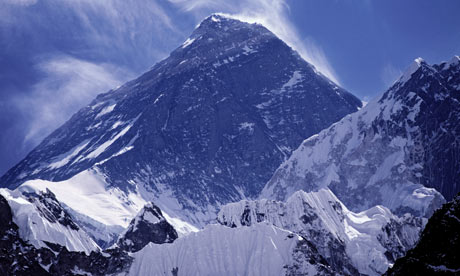 |
| From the Guardian website |
My favourite – and perhaps the most well-known – quote about
Everest is George Leigh Mallory’s “Because it’s there...” when asked why he
continued to attempt to climb it. This perhaps most closely describes my
passion for the hills; they’re there, and so they’ll always draw me towards
them. Mallory is the person who defines Everest in my opinion, along with his
climbing partner Sandy Irvine. Their story is well known to those interested in
climbing and mountaineering; when they first set out to climb Everest, the (now
much utilised) Nepali side of the mountain was forbidden territory, and so
their expedition, under the leadership of Howard Bury, began from Tibet
(Everest borders the two countries). No person had ever climbed to anywhere
near the height of Everest before, and it was unclear as to whether anybody
could actually survive at that altitude.
Nevertheless, the expedition strove on, determined to find a route to tackle the unclimbed peak. This was a reconnaissance, not a full-scale climb, and after getting as far as they could – further than anyone had gone before – Mallory and the team returned home.
Nevertheless, the expedition strove on, determined to find a route to tackle the unclimbed peak. This was a reconnaissance, not a full-scale climb, and after getting as far as they could – further than anyone had gone before – Mallory and the team returned home.
Mallory returned to Everest in 1922, under the leadership of
Charles Bruce. He, along with several others, reached an altitude of almost 27,000ft
(higher than anyone had ever gone before), but were unable to progress any
further. Two other climbers, George Finch and Geoffrey Bruce, were able to get
even further, but still did not make the summit. Their attempt, however, used
supplementary oxygen, and their remarkable success at reaching 27,300ft
motivated Mallory to try it – something he had previously been against.
In 1924, Mallory returned to the mountain under the
leadership of Norton, although he was made ‘climbing leader’ as a result of his
experience. After a failed attempt by Somerville and Norton, Mallory decided to
take his chances, along with supplementary oxygen and a young, inexperienced
climber called Sandy Irvine, who was chosen because of his skill with the
oxygen canisters. They arrived at Camp VI and set out for the summit, but after
a brief sighting by Noel Odell the day they made for the top, were never seen
again.
To this day, nobody knows whether they reached the summit of
Mount Everest, and it is one of the greatest mysteries in mountaineering
history.
Conrad Anker found Mallory’s body in 1999, still clinging onto the
rock face with his finger-tips, one of his legs broken, the other one wrapped
around it to presumably stop the pain. A broken leg on a mountain such as
Everest isn’t merely an inconvenience, it means death. Even something as simple
as a lost boot or a lost glove can kill you in the high-altitude, freezing conditions
and so Mallory - if he was conscious - must have known his fate. They’ve never
found Sandy Irvine’s body, though it must be nearby. Nobody knows what caused
Mallory to fall, whether Irvine fell with him or tried to descend on his own,
or as I said, if they made the summit.
Although if they did make the summit, which would put them before Hillary and Tenzing in 1953, as all mountaineers will tell you, getting to the summit is a bonus, getting down again is the battle, so they would not be considered true summiteers. Nevertheless, people to this day are trying to solve the mystery. It is known that they had a Kodak camera with them, which Mallory did not have in his possession when they found his body. If Irvine is found and he has it, it may be possible to discern from the pictures whether or not they actually reached the top.
Many of the climbing community however, disapprove of expeditions to try and find Irvine’s body. They say – rightly so in my humble opinion – that it doesn’t matter whether or not they reached the top. Mallory defined Everest, and played a key part in the early expeditions. The greatest mystery surrounding Everest should be left as such, as it is part of the charm.
Although if they did make the summit, which would put them before Hillary and Tenzing in 1953, as all mountaineers will tell you, getting to the summit is a bonus, getting down again is the battle, so they would not be considered true summiteers. Nevertheless, people to this day are trying to solve the mystery. It is known that they had a Kodak camera with them, which Mallory did not have in his possession when they found his body. If Irvine is found and he has it, it may be possible to discern from the pictures whether or not they actually reached the top.
Many of the climbing community however, disapprove of expeditions to try and find Irvine’s body. They say – rightly so in my humble opinion – that it doesn’t matter whether or not they reached the top. Mallory defined Everest, and played a key part in the early expeditions. The greatest mystery surrounding Everest should be left as such, as it is part of the charm.
Incidentally, if you are interested in Mallory’s story (for
there is much more to tell, I’ve merely skimmed the surface based on what I can
remember), there’s a brilliant film of Conrad Anker (the guy who found Mallory)
and Leo Holding (an incredible British climber), who attempt to climb Everest
the way Mallory and Irvine would have. At the moment, at the summit of the
mountain (and indeed further down) there are ladders installed by the Chinese
to get past several insurmountable faces, including the ‘Second Step.’
With these, it is possible to scale the face in half an hour, making a summit success much more likely. Without these, it would take hours to climb, and is technically almost impossible. Mallory and Irvine would have faced the summit in these conditions, in gear drastically inferior to what is available nowadays. If Anker and Holding can climb the step in the same conditions, it makes it much more likely that Mallory and Irvine would have been able to; it’s a brilliant watch, and also goes more deeply into the history. It’s called ‘The Wildest Dream.’
With these, it is possible to scale the face in half an hour, making a summit success much more likely. Without these, it would take hours to climb, and is technically almost impossible. Mallory and Irvine would have faced the summit in these conditions, in gear drastically inferior to what is available nowadays. If Anker and Holding can climb the step in the same conditions, it makes it much more likely that Mallory and Irvine would have been able to; it’s a brilliant watch, and also goes more deeply into the history. It’s called ‘The Wildest Dream.’
There are also many books on the subject, of which I’ve read
many (including ‘The Wildest Dream’
but this is one I’ve found is actually better as a film, because it’s easier to
see the mountain than it is to visualise it.
I’m not going to go into much more history of the mountain
because, although I love it, and there is a huge amount to go into, it would
take all day and probably bore you to tears. If you are interested, as I say,
there are plenty of books and internet articles out there.
My love affair with Everest started a couple of years ago
when I started reading my Stepdad’s climbing books. I’ve previously done
Kilimanjaro (which is just trekking) and so was curious to see how this
differed from actually climbing a mountain. A huge amount it turns out, as I
was introduced to words like jumars, ice screws, crampons, fixed lines and
other technical climbing jargon. I’m still not sure what some of it means but
it was an adventure and an education at the same time. I’m never going to be
able to be a climber – I’m not fit enough, brave enough, daft enough or
committed enough – so I love escaping into the world through these books. The
best I’ve ever read are:
· Andy Cave - Learning to Breathe and Thin White Line
· Don Whillans - The Villain (it's a biography but I can't remember who actually wrote it)
· Joe Brown - The Hard Years
· Joe Simpson - Touching the Void
· Tomaz Humar - another bibliography, just called Tomaz Humar I think
· Stephen Venables - he's written a few and all are good, but my favourite (I think) is Higher Than the Eagle Soars: A Path to Everest
· Graham Bowley - No Way Down - Life and Death on K2
· Jamie Andrew - Life and Limb
· Jon Krakauer - Into Thin Air
· Edmund Hillary, Stephen Veneables, and Dalai Llama - Everest: The Summit of Achievement (probably the most amazing factual book I've read)
The season that I have read the most about, perhaps because
of curiosity and perhaps because there are a lot of accounts from that season,
is the year of 1996, when a series of events led to one of the biggest
disasters in Everest’s history. There were more climbers on the mountain than
ever before, and as a result of guided groups, Everest was now easily
accessible to novice climbers who had a lot of money. A dangerous mix on such a
dangerous mountain.
Amongst the groups was an American IMAX expedition, hoping to film the climb, and two group led by guides Scott Fischer and Rob Hall. With so many people on the mountain, it made sense to stagger summit attempt days (for those not in the know, there are only a limited number of days to climb Everest every year, A clear weather window when the jet stream lifts for a while and before the monsoon arrives from late April to very early June. This is one of the reasons why Everest is so dangerous, because outside of that window, the mountain is unclimbable.
If you are delayed on the mountain and thus get caught in the monsoon, your chances of survival are slim). Scott and Fischer wanted to go on 10th May, and the others agreed to go before or after them, to reduce the number of people on the narrow ridges and roped steps above, and avoid causing a dangerous bottleneck, delaying summit times and reducing chances of survival. However, many times on the mountain at that time were either inexperienced or just arrogant, and despite agreeing not to, a Taiwanese team decided to attempt the summit on 10th May as well.
This, along with many other minor mistakes that, ordinarily wouldn’t have made such a difference, meant that many climbers were caught out in a storm that rolled in on the evening. Caught out in the open, with no shelter, no water and no food, in horrific conditions, there is very little chance that many of them would have survived.
Amongst the groups was an American IMAX expedition, hoping to film the climb, and two group led by guides Scott Fischer and Rob Hall. With so many people on the mountain, it made sense to stagger summit attempt days (for those not in the know, there are only a limited number of days to climb Everest every year, A clear weather window when the jet stream lifts for a while and before the monsoon arrives from late April to very early June. This is one of the reasons why Everest is so dangerous, because outside of that window, the mountain is unclimbable.
If you are delayed on the mountain and thus get caught in the monsoon, your chances of survival are slim). Scott and Fischer wanted to go on 10th May, and the others agreed to go before or after them, to reduce the number of people on the narrow ridges and roped steps above, and avoid causing a dangerous bottleneck, delaying summit times and reducing chances of survival. However, many times on the mountain at that time were either inexperienced or just arrogant, and despite agreeing not to, a Taiwanese team decided to attempt the summit on 10th May as well.
This, along with many other minor mistakes that, ordinarily wouldn’t have made such a difference, meant that many climbers were caught out in a storm that rolled in on the evening. Caught out in the open, with no shelter, no water and no food, in horrific conditions, there is very little chance that many of them would have survived.
Indeed, 8 climbers died as a result of that storm. There are
many differing opinions on what went wrong that day, who made the wrong
judgement calls, and what should have done instead, and there are many
differing opinions of what actually happened. If you want to know more, read
Jon Krakeur’s ‘Into Thin Air’ for his
account of the disaster; a incredibly interesting book, but also quite chilling,
especially when you get to his account of Andy Harris’ death. It just shows how
hypoxia can cloud judgement and your brain entirely, and how, on a mountain, it
is very difficult to look out for anybody other than yourself.
One of the most
amazing stories to come out of that disaster though, is that of Beck Weathers. He
was left for dead several times throughout the disaster, the most disturbing
being when he was found half frozen to death, his face under a block of ice and
entirely unconscious. In those conditions, it is impossible to carry somebody
down from the mountain, and so was left for dead by other climbers who had no
choice.
Incredibly, as someone had chipped the ice away from his face (bearing
in mind that he was practically blind at that point as a result of
snow-blindness and recent eye surgery), he managed to make his way down,
unassisted to one of the lower camps, and was airlifted to hospital. Despite
extensive frostbite, he lived to tell the tale, and published his book ‘Left for Dead’ in 2000.
Conrad Anker is currently leading another expedition on
Everest, with photography Cory Richards. This is being sponsored, and highly
documented by, National Geographic, who are giving real-time updates of events
happening on the mountain. They’re nowhere near ready to attempt the summit yet
(climbing Everest requires a long period of acclimatisation and getting supplies up to high camps), yet they’ve
already had several close shaves (including an avalanche near base camp), and
their first death of the season – an experienced Sherpa who died after falling
into a crevasse after failing to clip onto the safety rope.
Cory Richards (also an Everest veteran) is recovering after an evacuation as a result of an AMS scare, showing that, no matter how experienced you are, the mountain is still in charge. For anyone who wants to follow the expedition (and I suggest you do, it’s fascinating), the website is here: http://ngm.nationalgeographic.com/everest/overview or type #OnEverest into Twitter.
Cory Richards (also an Everest veteran) is recovering after an evacuation as a result of an AMS scare, showing that, no matter how experienced you are, the mountain is still in charge. For anyone who wants to follow the expedition (and I suggest you do, it’s fascinating), the website is here: http://ngm.nationalgeographic.com/everest/overview or type #OnEverest into Twitter.
I don’t know what it is that draws me to Everest; whether it’s
the history of the place, to mystery of the place, or just the sheer beauty I
don’t know, but I do know that it’s somewhere that I must visit. The best way
to go about this, is to trek through the Himalayas to Everest Base Camp. This
is the trek that all expeditions undertake, and to tread in the footsteps of
legends would be phenomenal. Not only that, but the place is incredibly
beautiful.
Along the trek, you pass through Sherpa villages such as Namche Bamzar, and Gorak Shep, and see incredible views that you just can’t rival. Where else can you see a Himalayan mountain, towering above you at every corner? You also walk past, and visit, Buddhist monasteries and past realms of prayer flags. It sounds wonderful, and is just somewhere I have to go. It’s a tough walk, but that’s part of the attraction; walking, mountains and history – sounds like an incredible combination to me!
Along the trek, you pass through Sherpa villages such as Namche Bamzar, and Gorak Shep, and see incredible views that you just can’t rival. Where else can you see a Himalayan mountain, towering above you at every corner? You also walk past, and visit, Buddhist monasteries and past realms of prayer flags. It sounds wonderful, and is just somewhere I have to go. It’s a tough walk, but that’s part of the attraction; walking, mountains and history – sounds like an incredible combination to me!
"Everest for me, and I believe for the
world, is the physical and symbolic manifestation of overcoming odds to achieve
a dream." – Tom Whittaker.
Saturday 28 April 2012
Reflections on Mali and the current West African Food Crisis
I have now been at home for more than four months, and it’s like I’ve never been away. I’ve settled into my (relatively) comfortable lifestyle at home, and it’s easy to forget that Mali even exists sometimes. That’s not been the case over recent weeks however, and it’s for the most unfortunate of reasons.
When I was living in Mali, we were troubled by several worrying news stories – when Gaddafi died, and when several western hostages were taken in the northern regions. None of this created the backlash that we expected at the time however. Apart from a few protests and a slight restriction on our travels, we didn’t really notice any difference to normal life. We know now however, that this was the beginning of a ripple that would lead to the overthrow of ATT, the successful Malian president that served nearly two terms in Africa’s ‘model democracy.’ If we’re being honest, the ripple was set in motion many years earlier. The Tuaregs number around three million, all across the Sahel, and the largest number (around one-third) live in Mali. The country has experienced rebellions throughout the past decades, the most serious being in 1962-4, 1990-95, and 2007-9, but all were put down and the country carried on as normal. The Tuareg’s argument is that they want to reclaim their land, and to create a separate country for themselves as they disagree with the so-called ‘southern government’ in Bamako. They don’t want to take over the whole country, merely annex the north and claim the region they call ‘Azawad’ as their own.
If this has been going on since the 1960s, then why has this one succeeded? Well one of the main arguments ties in with one of the key events that occurred whilst we were living in Mali – the death of Gaddafi. As I have mentioned previously, Gaddafi had a lot of support and influence throughout Africa, including in Mali. He had spent a lot of money on the main government buildings, owned a series of hotels in the capital, and had paid for a lot of the momuments throughout Bamako. This is not the only reason he had support however. Gaddafi disagreed with western interventionism, and wanted instead pan-Africanism, for which there is a lot of support on the continent. Therefore, there were a lot of people, mainly Tuaregs, fighting for Gaddafi in Libya. When the dictator was killed, they fled the country and returned to their home territories. The rebellious community now had thousands of well-equipped, organised and well-trained individuals to lead them and to create a strategy. This of course takes time, as does creating an increased feeling of discontent throughout the region, and waiting for the time to be right. This is why we didn’t experience an immediate backlash whilst in-country. Several groups united, and they eventually became strong enough to create a movement of their own – the MNLA (Mouvement National de Liberation de l’Azawad). With a national election coming up in just a month, they felt that March was the right time to strike. The military had long since complained of being ill-equipped to fight the rebelling Tuaregs in the north, and their discontent was used strategically in the coup, as it was they who fired on the Presidential Palace the night that the coup occurred.
Simultaneously, West Africa has been suffering a serious food crisis. Many people began fleeing from the northern regions of Mali into Niger, Senegal, Burkina and other surrounding countries since the death of Gaddafi, and coupled with a drought and other factors, West Africa simply does not have enough resources to feed its inhabitants. This was always going to be a problem, due to low rainfalls and failed harvests, and is something that aid organisations spotted and started helping with months ago. However it has since been exacerbated by the thousands of extra people now in Niger and other West African countries. Some of the poorest countries in the world simply cannot cope with such a crisis.
According to WorldVision, 15 million people are affected by the crisis, and 12 million of those are in Mali and Niger alone.
In March, the MNLA fired on the presidential palace in Mali, and Amadou Toumani Toure was forced to go into hiding. The country was left in complete confusion for days, until the rebels announced they had control, placing Amadou Sanogo in charge. Within hours they had unveiled a new constitution. To say they had complete control over the country was a bit of a stretch however. Ex-pat friends over there said that all Malian TV was cut off (apart from military broadcasts), power was shut off and they were under a 24 hour curfew. Within days however, widespread looting was occurring across the capital, with people panicking about possible lack of fuel and cash as a result of impending sanctions from ECOWAS, the Economic Community of West African States. When the coup was first announced, heavy gunfire was heard throughout the night, as the military fired in the streets in celebration. The air was one of general panic and uncertainty, and not that of a strong, stable government.
As a result of the political uncertainty, two groups took advantage; the Tuaregs and AQIM (Al-Qaeda in the Maghreb) both situated in the north. Both began to take control of key, influential towns such as Kidal, Gao and Timbuktu, and Sanogo and the military soon began to lose control. Citizens in the north began fleeing in earnest as heavy gunfire rang out throughout the northern towns, and Niger was inundated with thousands of refugees. All westerners in the country were advised to leave, and the current group of DFID-volunteers were flown home early (they had been trapped in the office for days). The ex-pat family I had made friends with over there also left the country in a hurry; not only were they leaving Mali behind, but they were leaving their lives behind as, although they were planning on moving back to England this summer, they had to bring it forward and leave with very little preparation or planning. My Malian friends are well, but worried at the current uncertainty. I don’t think anybody could have seen a coup occurring, but discontent with ATT was certainly rife when I was there. As I mentioned in a previous post, Adama didn’t think he was doing enough for education or poverty, and although respect for the President bordered on deifying him at times, it was always very superficial.
So the question is what happens now? Well nobody is sure. There is now a temporary president who has reformed the previous constitution – Sanogo was forced to give up power when ECOWAS sanctions meant that the country had no access to imports such as fuel or cash (not great for a poor, landlocked country), and the threat from the Tuaregs became too much to handle. Dioncounda Traore is only in power for 40 days (though it will likely take longer than that to organise elections), and he faces many problems. First and foremost is the trouble up north. Recently, and by their own admittance too early, the Tuaregs announced the independence of Azawad, which was promptly rejected. However, they have control of key towns and garrisons, as do AQIM. It is hard to differentiate between the two, but they are two very different groups with different aims. Whether they are working together or apart doesn’t matter – the Tuaregs do not want control of the country, and aim to be peaceful once they have claimed independence. AQIM however, have imposed sharia law in some towns, and they have begun to distance themselves from the Tuaregs. They pose the biggest threat but are now difficult to fight without hurting innocent civilians.
It’s a worrying time for such a beautiful country, and coupled with a food crisis the country is being crippled. In the worst-hit areas, families are only able to feed their children once a day, and there are fears by aid organisations that ECOWAS sanctions could make things worse. Food prices are increasing as a result of the blockade on imports, which means that already poor families cannot afford food at all. This also affects fuel, which has also been blocked, which therefore affects the power supply. Those who have not fled to neighbouring countries are displaced and there are no funds with which to help them. Niger is crippled by poverty and drought itself, and cannot cope with the influx of refugees from the stricken Mali.
If you can afford to help at all, please do. This is a country and a region very close to my heart, and I know people who have been directly impacted by this crisis. I met many Malians who relied on the tourist industry to survive, which was already small as a result of the Tuareg rebellions in previous decades. With this coup, there will be no tourism at all, meaning that thousands of people will have no income. Mali does not have a healthcare system, or a benefit system, and there is no-one but us to help them survive. There are many aid agencies trying to help at the moment, but the best I have found are:
Labels:
Adventures,
Africa,
Coup,
food crisis,
Mali,
West Africa
Mali
For those of you who don't know, I spent three months last year (from late September until mid-December) living in Mali, West Africa, as part of DFID's ICS scheme. (More information here for anyone who's interested and I encourage anyone interested to apply! http://www.dfid.gov.uk/ics I went with International Service who I highly recommend)
I experienced a lot throughout that time, and did a blog with regular (usually) weekly updates throughout. Obviously not going to replicate the whole thing here, as that would be tedious, but I'm going to post a few snippets of my best and most interesting bits. Hopefully it will make sense without all of the context. If anyone does actually want to read the blog in full it's here: http://sophieinmali.wordpress.com/
Week One
"I’m currently sat in my room in the International Service Office, in Bamako, Mali, in a temperature of about 25 degrees Celcius, feet covered in dust, hair still soaked from a torrential thunderstorm, with the fan being generally ineffectual. I’ve been here for a grand total of two days, and already so much has happened, I’m wondering how to fit it all into one blog post...
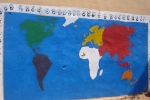
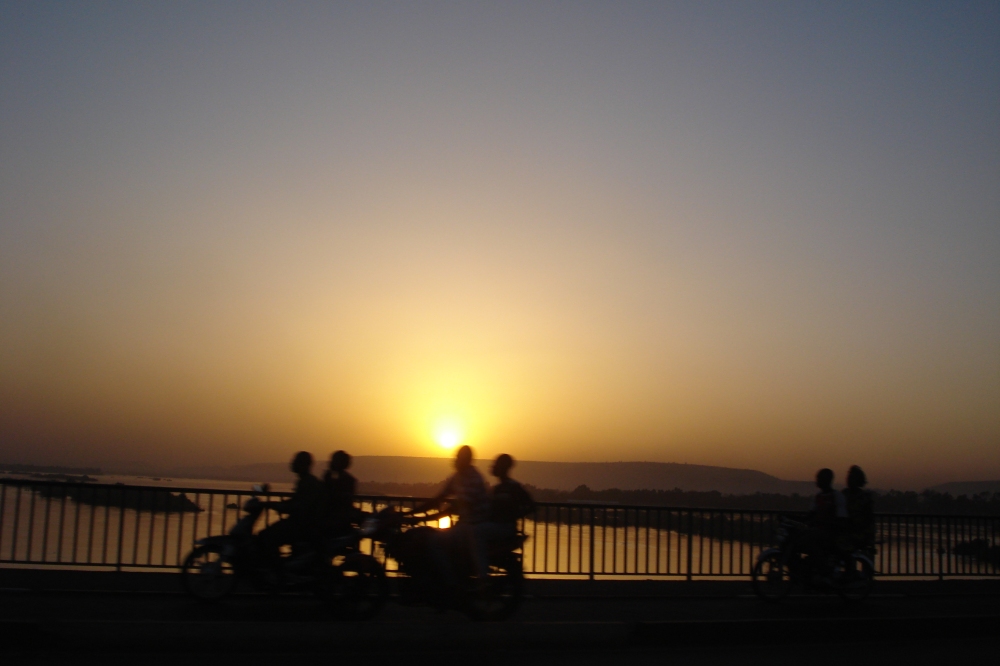
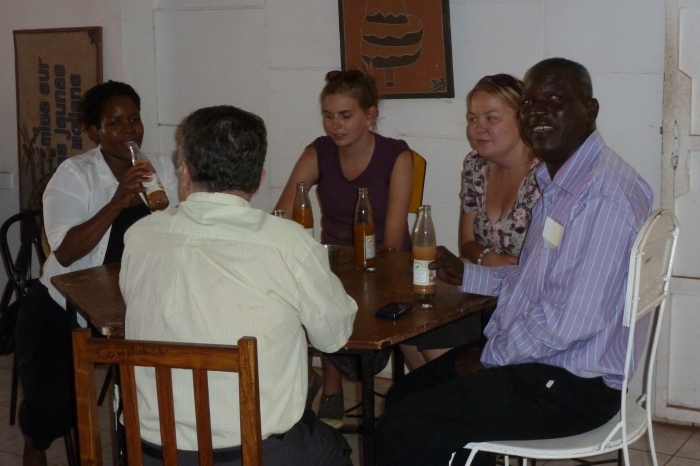
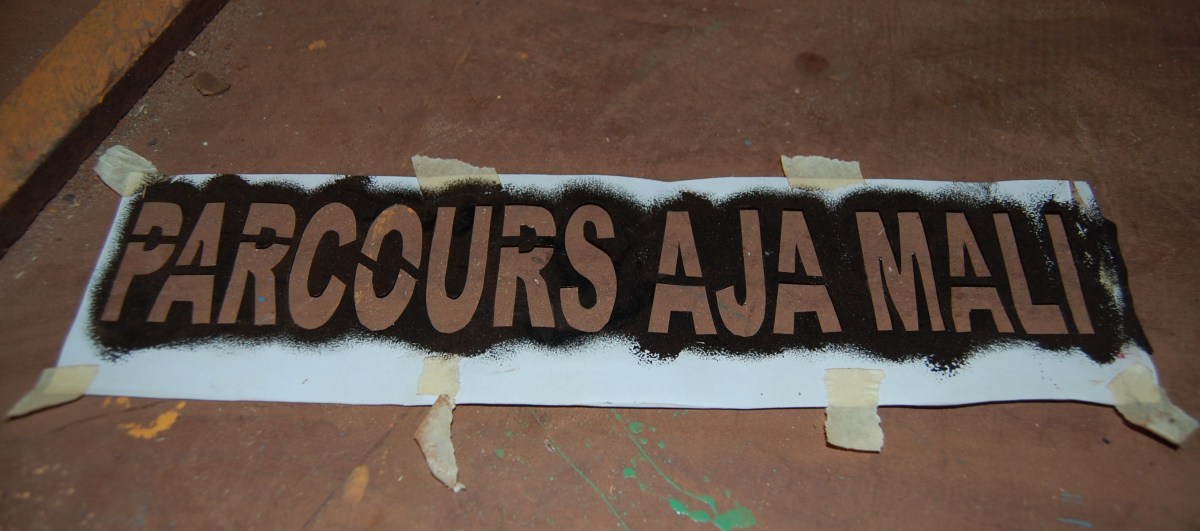
In Mali, you have to greet people, it’s considered disrespectful not to, but there are about a million different greetings! Mostly a simple ‘Bonjour’ will do, but in Bambara it’s complicated. From;
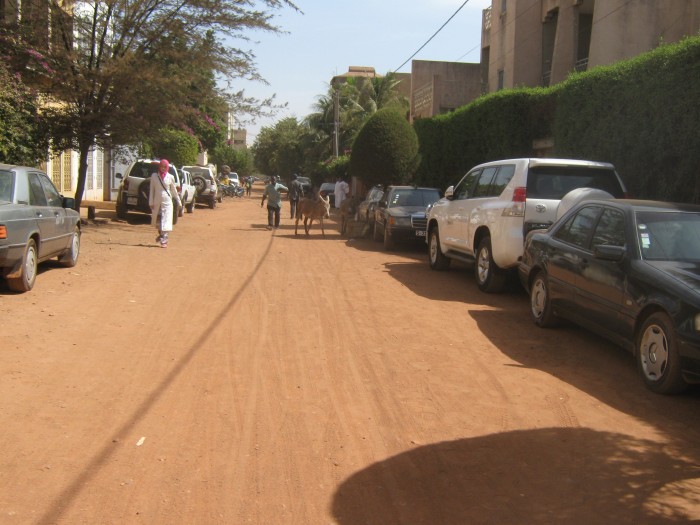

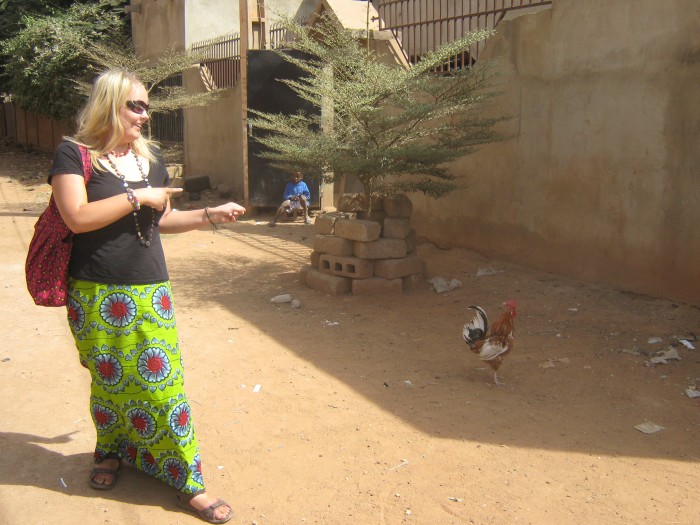
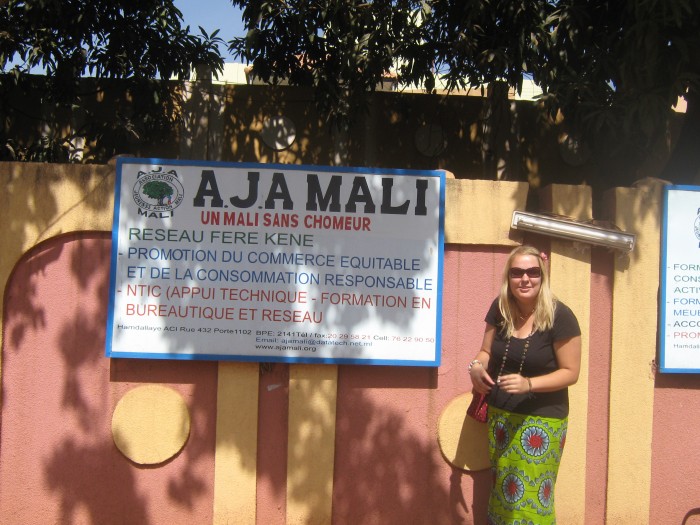
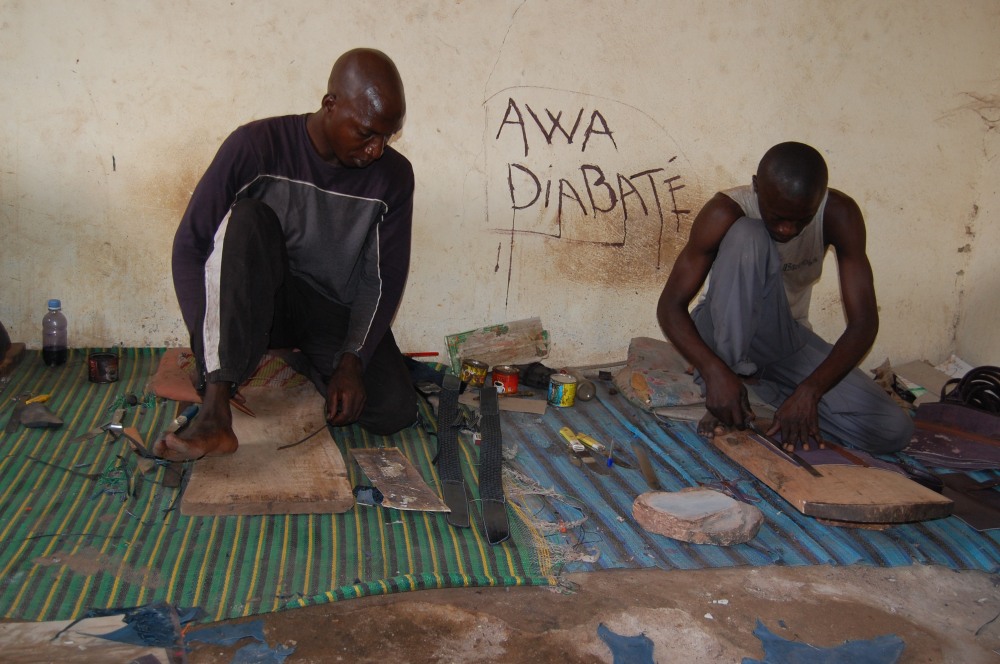 "We drove about 45 minutes across Bamako in perhaps one of the most uncomfortable cars I have ever been in, and in Africa I’ve been in a few. It had no suspension, no seatbelts (although that’s the norm here) and the seats were leather, and at the hottest part of the day, it burned us through our trousers. It was worth it though, as we visited five artisans that day, and got lots of information and pictures for our catalogue. The first one was difficult to see though, as it’s difficult to know what good working conditions are here for arts and crafts. The first workshop was just a bare room, with four artisans working on the floor, making bags out of leather. The bags were beautiful and of great quality, but the room was full of flies who were attracted to the skin, and it didn’t make for a very pleasant atmosphere.
"We drove about 45 minutes across Bamako in perhaps one of the most uncomfortable cars I have ever been in, and in Africa I’ve been in a few. It had no suspension, no seatbelts (although that’s the norm here) and the seats were leather, and at the hottest part of the day, it burned us through our trousers. It was worth it though, as we visited five artisans that day, and got lots of information and pictures for our catalogue. The first one was difficult to see though, as it’s difficult to know what good working conditions are here for arts and crafts. The first workshop was just a bare room, with four artisans working on the floor, making bags out of leather. The bags were beautiful and of great quality, but the room was full of flies who were attracted to the skin, and it didn’t make for a very pleasant atmosphere.

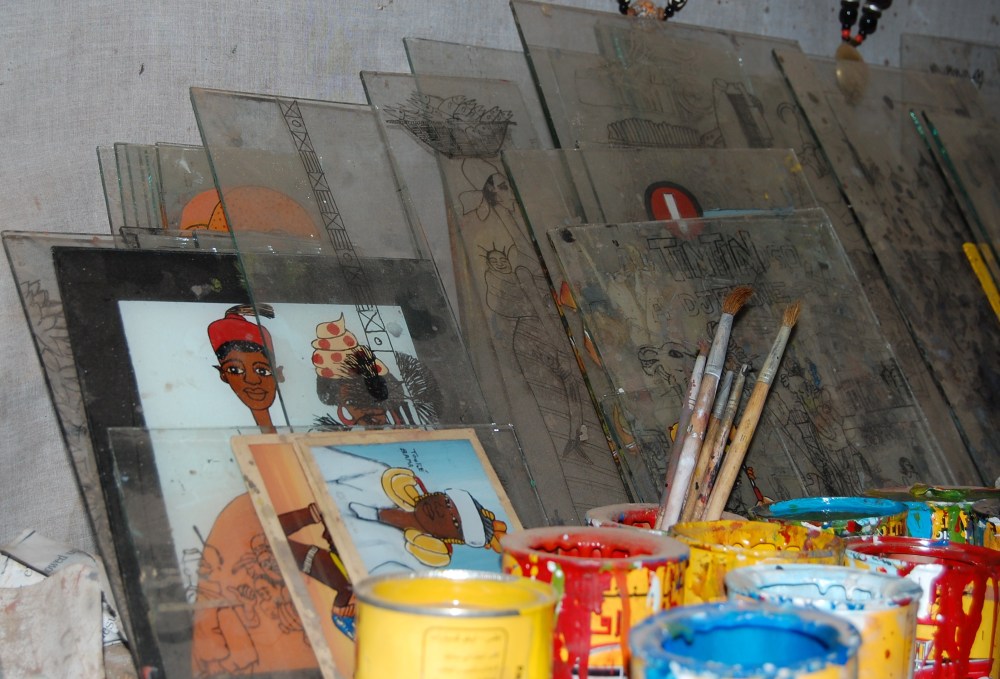 Friday was a really interesting day. I went with David this time, and we’d already planned to go to Segou at 2pm, so had made it clear to them the day before that we had to start earlier this time. We got to the AJA office at 8.50am (I was sick of needlessly getting up at 6.30) and set off on time, for what has to be the first time ever here in Mali! We first went to visit the most amazing lady I think I will ever meet. She is a widower (her husband died in 1985) and she runs a centre for other widowers and their children, and they make traditional clothes such as ‘bogalan’ and also recycled paper. I thought this was brilliant, as they use white paper (with no writing on them), then soak it in water, do something else to it, and use a food processor to mash it all together again, it’s really innovative.
Friday was a really interesting day. I went with David this time, and we’d already planned to go to Segou at 2pm, so had made it clear to them the day before that we had to start earlier this time. We got to the AJA office at 8.50am (I was sick of needlessly getting up at 6.30) and set off on time, for what has to be the first time ever here in Mali! We first went to visit the most amazing lady I think I will ever meet. She is a widower (her husband died in 1985) and she runs a centre for other widowers and their children, and they make traditional clothes such as ‘bogalan’ and also recycled paper. I thought this was brilliant, as they use white paper (with no writing on them), then soak it in water, do something else to it, and use a food processor to mash it all together again, it’s really innovative.
She also has a training classroom for the children as well, where they train them in French and clothes making, amongst other things; they have a ‘cyber cafe’ too, in the loosest sense of the word. It basically consists of some ancient Dell desktop computers that some Germans sent over and they attempted to rebuild.
The lady was amazing however. She has a really funky name that I can’t remember, but we just stayed and chatted to her for about an hour and a half, as opposed to the half an hour we spent with the other artisans. She’s not selling enough products at the moment, which means that sometimes she can’t afford to pay her workers. I’ve decided I’m going to fundraise for her when I get home; I wanted to do it before I came out, but I wanted to make sure the money went to a project that I knew needed it, and this one definitely does. She had a really nice relationship with the ladies from AJA, almost one of a grandmother, and she was really sweet.
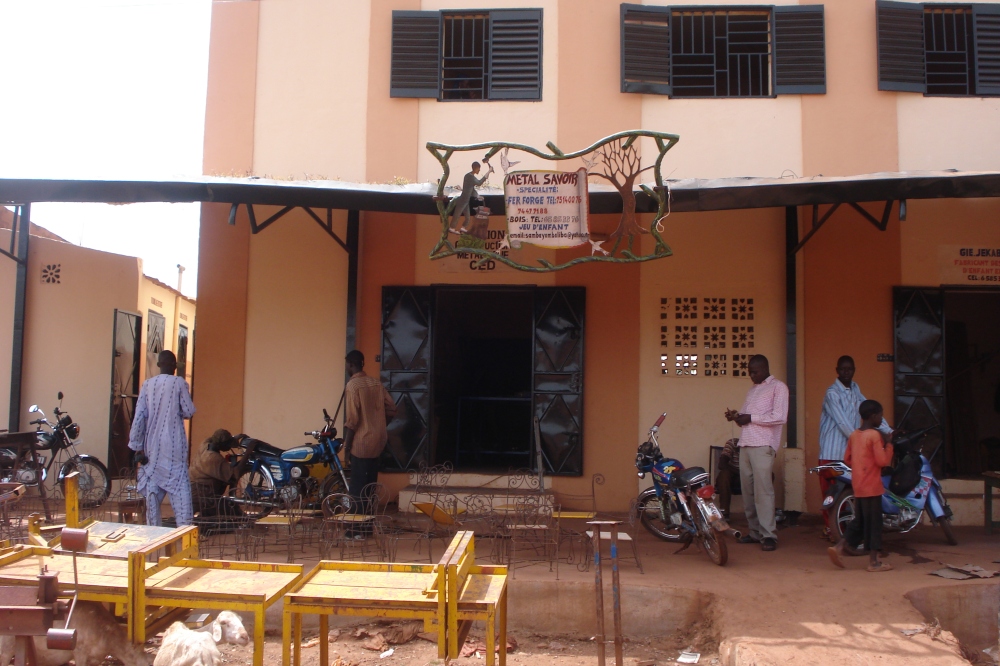
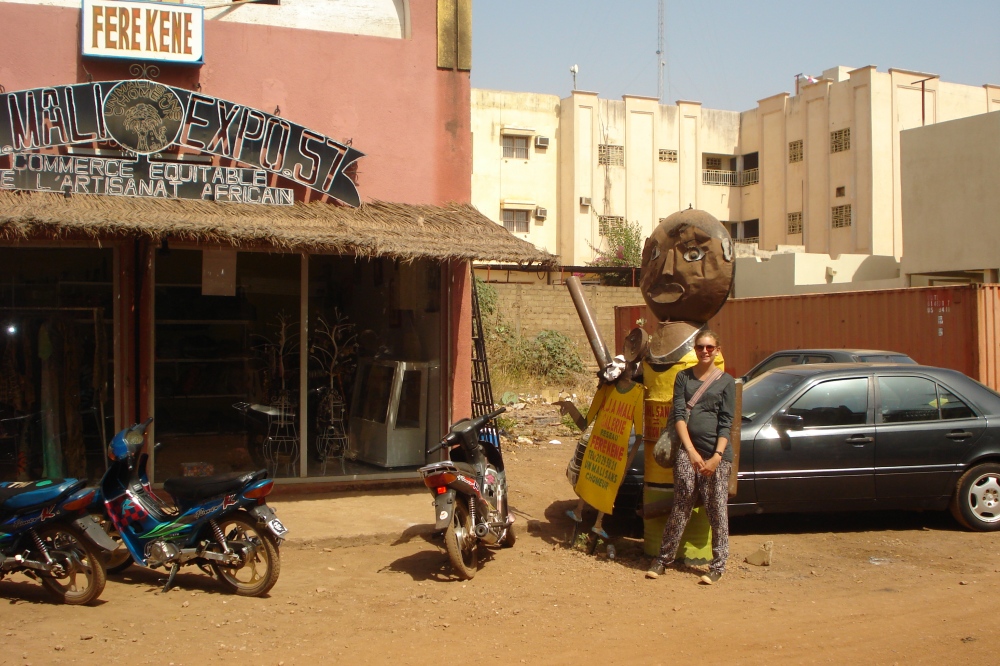

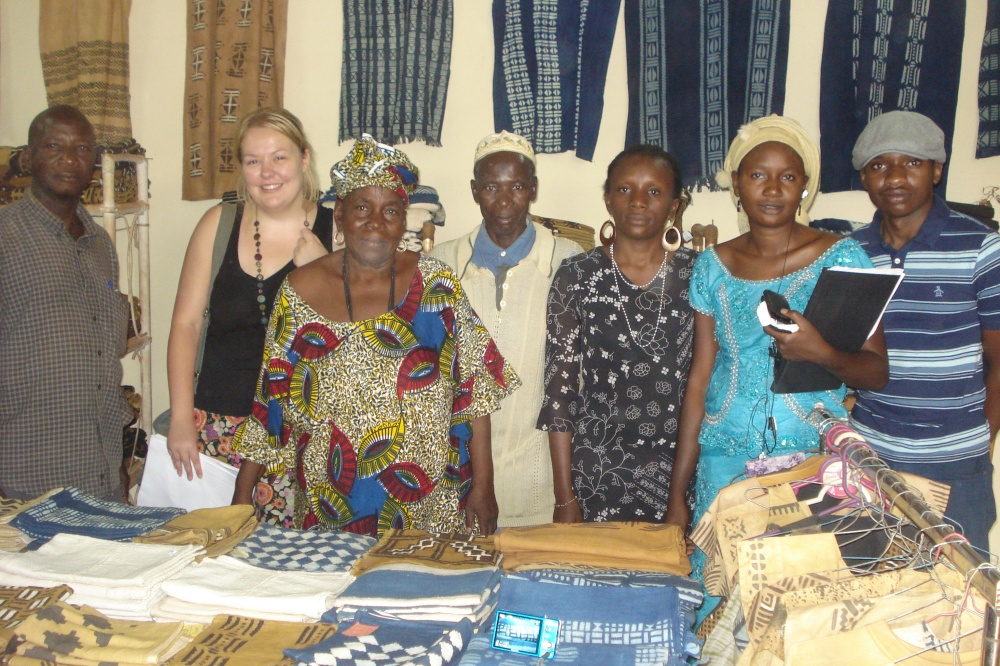
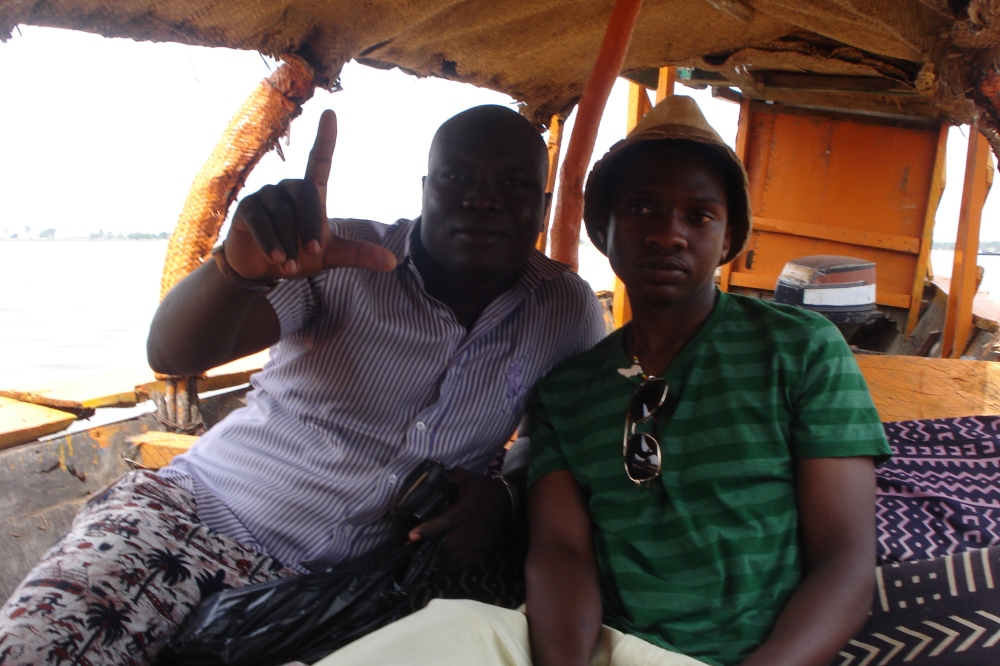

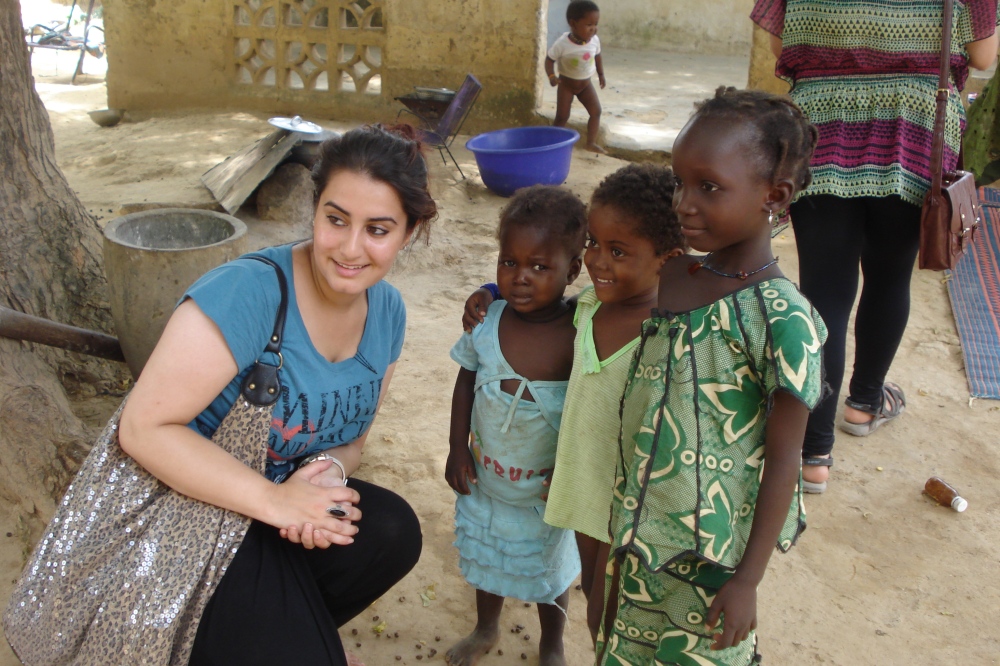
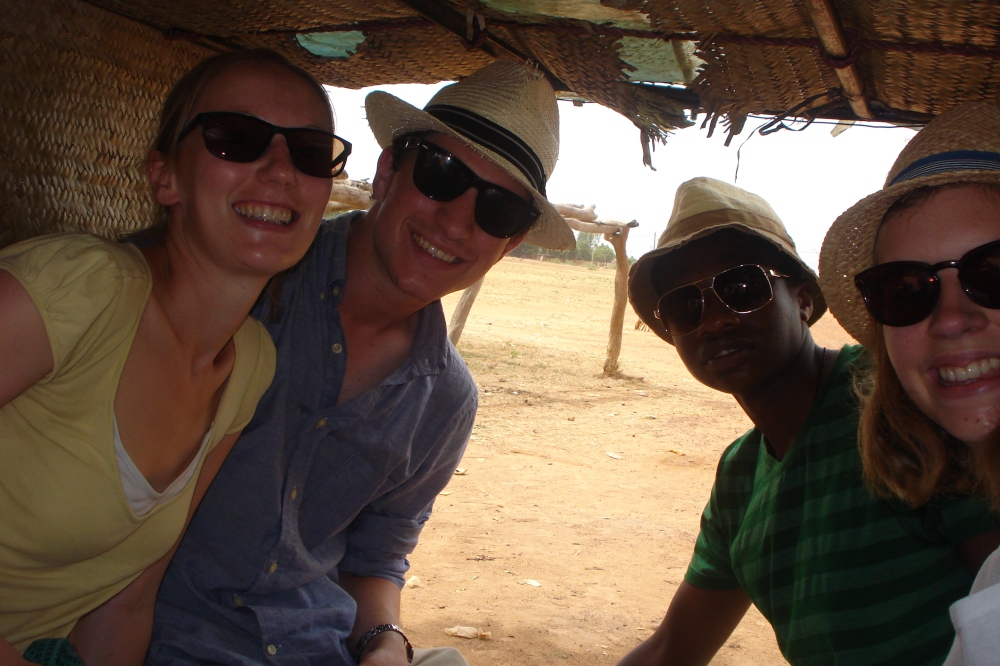
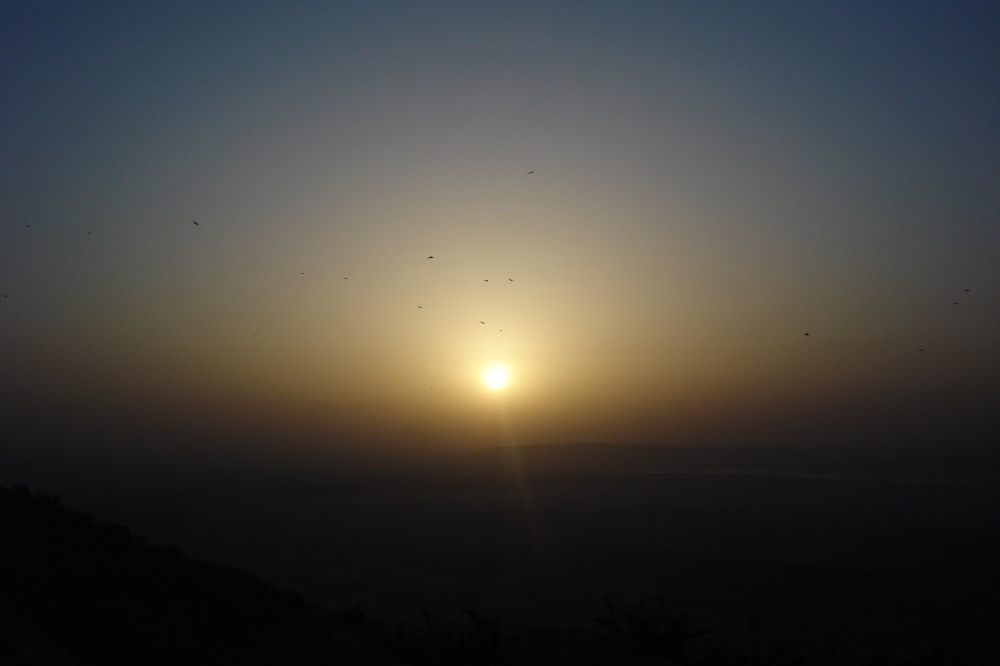
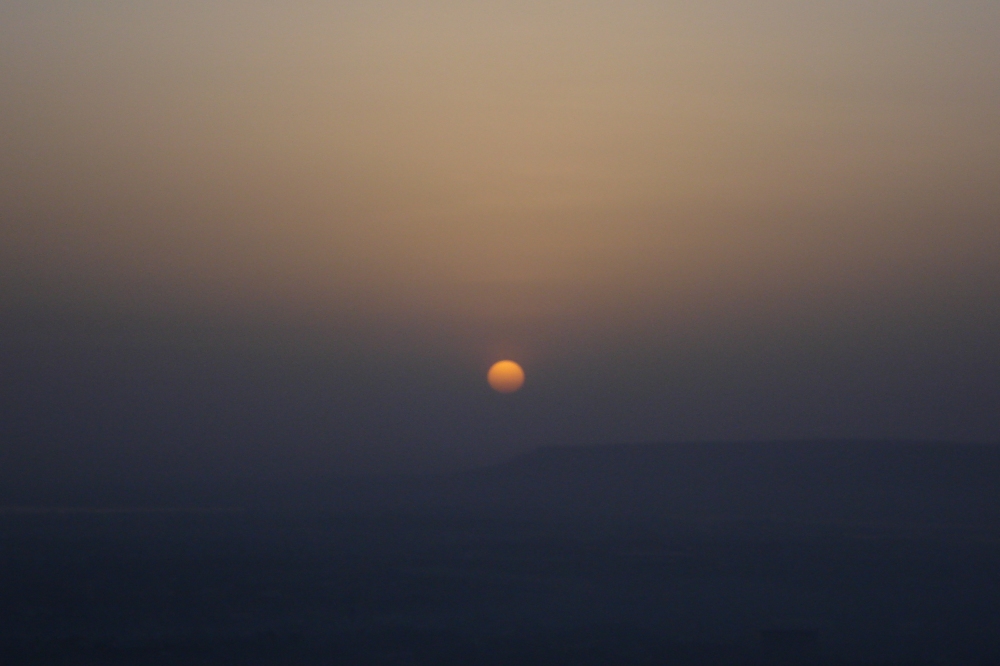
It was so, so worth it though; if you’ve never seen the sun rise in Africa, it’s something you have to do. I’ve seen it a few times now, and although nothing will beat the time I saw it on the summit attempt of Kilimanjaro, it’s pretty magical! I did take some photographs, but they don’t really capture the essence of it! Also, what turned out to be a construction site turned out to be an outside gym, and we were soon joined by a couple of Malians, quietly working out near us. We think they were something to do with the military as we were near quite a few military bases, as we were near the President’s hill.

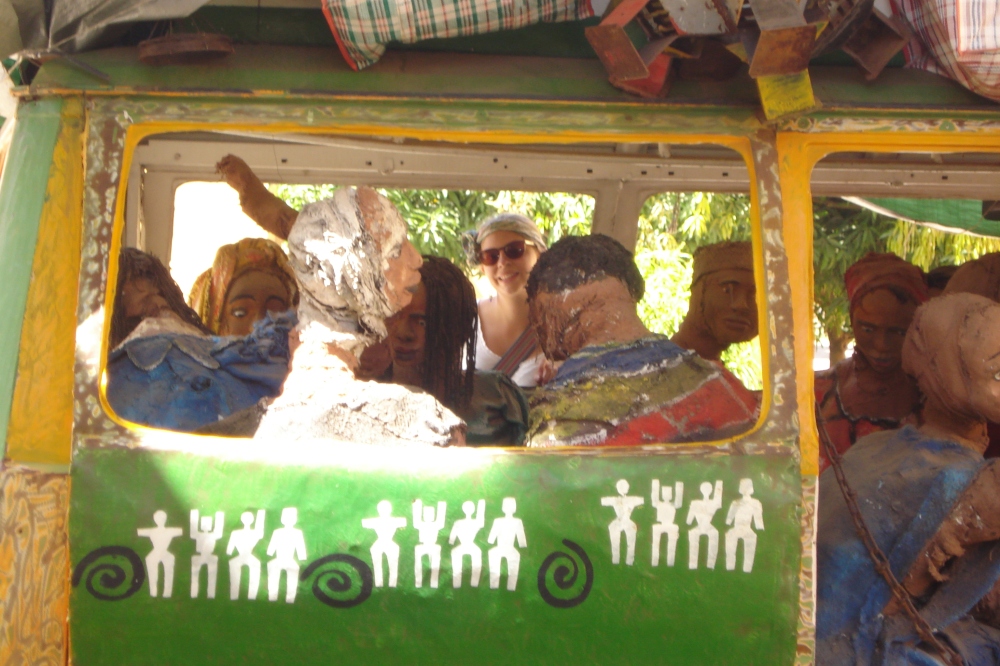

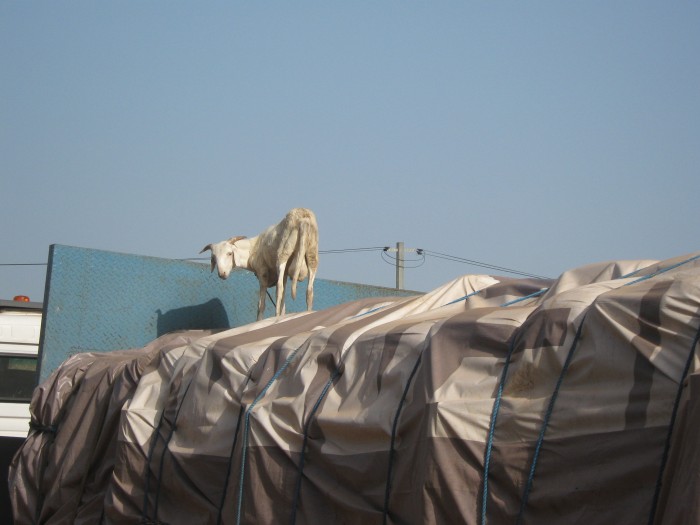
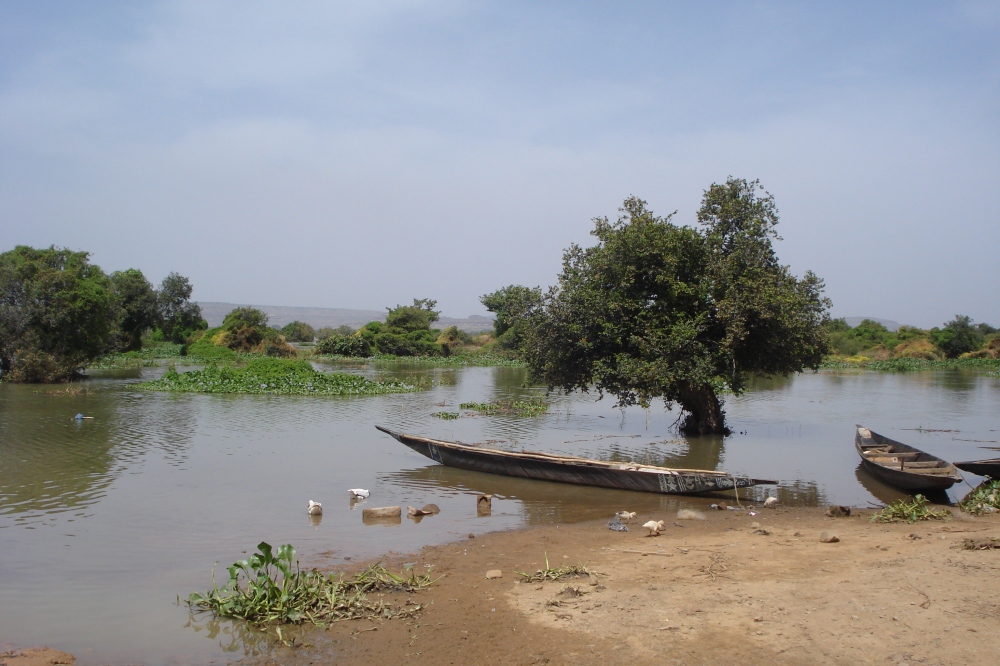



28th November 2011
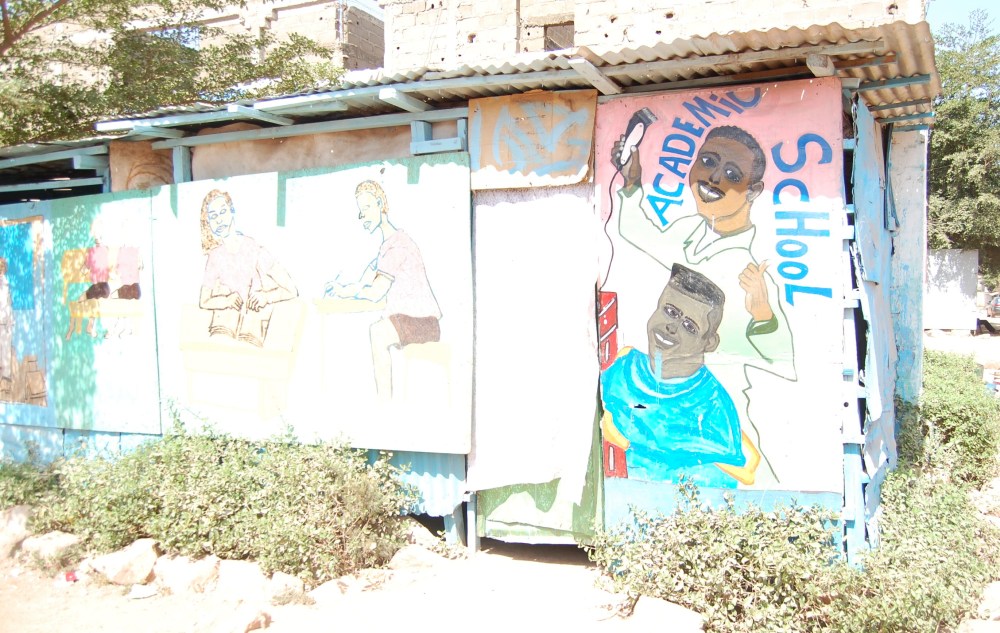
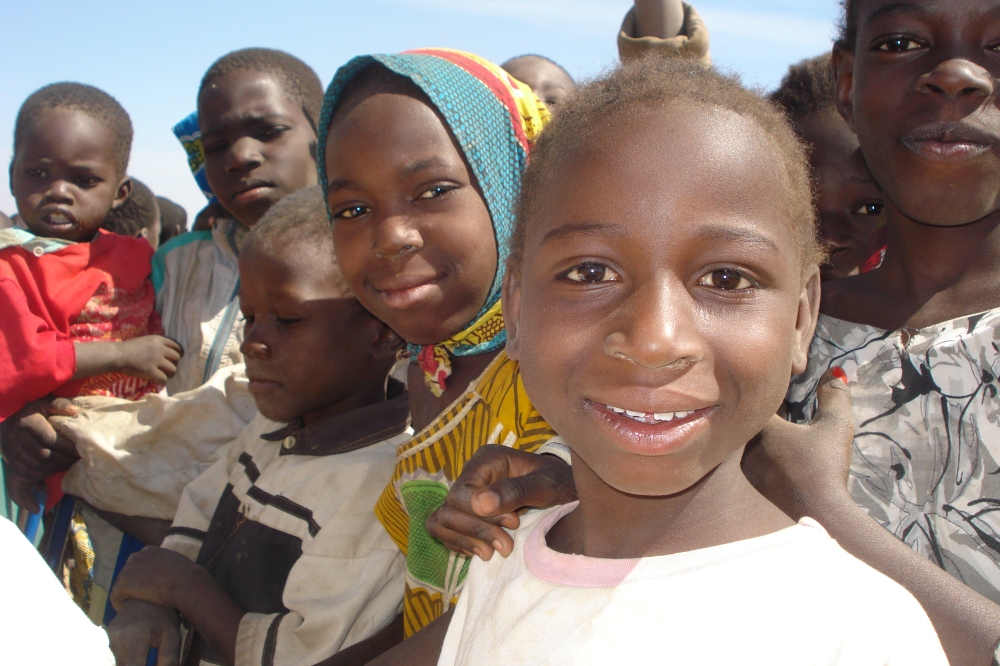
I experienced a lot throughout that time, and did a blog with regular (usually) weekly updates throughout. Obviously not going to replicate the whole thing here, as that would be tedious, but I'm going to post a few snippets of my best and most interesting bits. Hopefully it will make sense without all of the context. If anyone does actually want to read the blog in full it's here: http://sophieinmali.wordpress.com/
Week One
"I’m currently sat in my room in the International Service Office, in Bamako, Mali, in a temperature of about 25 degrees Celcius, feet covered in dust, hair still soaked from a torrential thunderstorm, with the fan being generally ineffectual. I’ve been here for a grand total of two days, and already so much has happened, I’m wondering how to fit it all into one blog post...




In Mali, you have to greet people, it’s considered disrespectful not to, but there are about a million different greetings! Mostly a simple ‘Bonjour’ will do, but in Bambara it’s complicated. From;
6am-11am – I ni sogoma
11am-2pm – I ni tile
2pm-6pm – I ni oola
6pm-6am – I ni su
Men are supposed to reply with ‘Mm ba ni [time of day]’ and women ‘Nseh ni [time of day]’ but they very rarely do, and it’s hard to carry on a conversation after that! They also have lots of rules about who you can and can’t joke with, it’s quite complicated. There are many different ethnicities from different parts of Mali, and only people with certain family names can ‘joke’ with each other. When you can joke, people often call each other their ‘sister’ (as Salif did with Fatima), ‘mother’ or even ‘slave’ when really they’re just a friend and have a family name they can joke with. I can’t really explain it properly, but Salif said it helps to avoid racial problems...
The people at IS are;
Rene – Administration and Finance
Jean Pascal – Development Worker
Mohammed Dolo – APEJ Intern (the Malian national volunteering scheme, the idea is that we share experiences)
Adama Dolo – Interpreter (though he’s very shy in big groups, bless him)
Brehima – Driver
Awa – Cleaning Lady
In the IS talk, Fred talked about the history of IS Mali, and they about the ICS programme and our projects which was interesting, but we already knew most of it. We also talked about visiting the rest of Mali, and we found out some interesting places to go.
It turns out that the American ‘Red Zone’ is quite a lot higher than the British one, and as Djenne is on the border, it’s safe to visit according to the Americans. The only reason that the British won’t allow us to go, is that they only have two people here in Mali, the ambassador and the previous consulate, so they don’t have the man power to be dealing with problems if something goes wrong. The Americans however, have a large presence here, and so have arms and men to operate a search and rescue if needs be. Think it’s time we reminded the Americans of the special arrangement!
Bamako itself is really nice, though it’s true that it’s the epitome of African cities – busy, dusty, full of markets and people. We’re staying outside of the city centre though, and there are little shops to buy bread and water from though so it’s nice. We’ve befriended some of the local children, though I haven’t really spoken to them much yet, and everyone is really nice and friendly. All of the team get on, which is really nice, and we all tend to eat together and things.
It’s very odd being in an African country that speaks French. I can read all of the signs, and understand quite a lot of what people are saying, but I can’t find the words to respond, and they often mix it with Bambara anyway, and it’s hard to understand the culture, so it’s odd kind of half understanding things, and constantly having to pay attention."




4th October 2011
"The market was absolutely indescribable. So big and so busy and so noisy and so many people and fumes and sun and just….everything! It was a complete over-stimulation of all your senses and completely cemented Bamako’s place as the epitome of Africa. It’s split into different sections depending on what you’re buying, i.e. crafts, fruits etc. We went to the crafts section first, which is targeted specifically at tourists, and is quite similar to things I’ve seen before, with hundreds of beautifully made drums, jewellery, models and statues, and many men all trying to sell you the same thing for different prices.
They spoke very good English and insisted on us trying all the drums and things to try and entice us to buy them; I didn’t bother because, like an idiot, I had forgotten my water and was feeling a bit tired and dehydrated, but the others did and they were really good! They also had shoes made from real crocodile skin, which was interesting, but a bit disturbing.
They spoke very good English and insisted on us trying all the drums and things to try and entice us to buy them; I didn’t bother because, like an idiot, I had forgotten my water and was feeling a bit tired and dehydrated, but the others did and they were really good! They also had shoes made from real crocodile skin, which was interesting, but a bit disturbing.
It was really strange however, as there were some weird things when walking around the market. You’d go from traditional African products, to plush Father Christmas and reindeer toys, which was a bit surreal when it was pushing 36 degrees in the middle of October. Another bizarre thing is that Malians LOVE Barack Obama. Loads of people wear t-shirts with his name on, there are posters everywhere, and when you talk to people they really like him. Another one of their idols however, is Ahmadinejad, the Iranian president, and they talk a lot about how Iran is their friend; what a contrast. There is also a massive amount of pro-Gaddafi support here, but more on that later."




11th October 2011
"There are three main people within AJA [the NGO partnered with International Service, the organisation we worked for out there] that we deal with; Fatimata, head of the Fèrè Kènè project (the gallery that supports and promotes the artisans), Mme. Coulibaly, the director of the entrepreneurs we’re dealing with, and Sougoudogo, head of the Baguineda project, which is the market gardening etc. Sougoudogo was the rudest about us, saying that we weren’t what we expected, and that he expected more from us, and Mme. Coulibaly is quite scary and very much looks down her nose at us.
After that meeting, we came away with about a million things to do, but we weren't entirely sure how to go about doing any of them. We took the weekend off to relax however, and to think it over, and we gradually became more optimistic as we got more and more ideas. The only work we had to do over the weekend was a stupid, pointless 70 day timetable of our time at AJA; when we were going to do specific tasks for each project, and who was going to complete them. This was totally impossible and impractical, as until we’d spoken to a few people, we had no idea of the timeframes each job would require, and so we just made up a generic one on Sunday evening to keep them happy.


After that meeting, we came away with about a million things to do, but we weren't entirely sure how to go about doing any of them. We took the weekend off to relax however, and to think it over, and we gradually became more optimistic as we got more and more ideas. The only work we had to do over the weekend was a stupid, pointless 70 day timetable of our time at AJA; when we were going to do specific tasks for each project, and who was going to complete them. This was totally impossible and impractical, as until we’d spoken to a few people, we had no idea of the timeframes each job would require, and so we just made up a generic one on Sunday evening to keep them happy.


On Sunday morning, I braved the market again, with the others, mainly to have a look at the Fetish market. In hindsight, I almost wish I hadn’t, as it was vile. There were horse heads, donkey heads, monkey heads (with perfectly preserved facial expressions), dead parrots and loads of other (thankfully) unidentifiable things, and the smell was overpowering. We gave up on that after about 10 minutes, and split up to try and find the fruit market (it’s like a warren or a maze, and is about 4 miles square altogether, so unless you know where you’re going or pay someone to take you, it’s impossible to get anywhere).
It was about 38 degrees, so after walking for about half an hour, we gave up, and walked for another 20 minutes to find a Sutrama back home. I did manage to see however, many Gaddafi stickers on the back of cars and Sutramas, and also some Barack Obama underpants!
It was about 38 degrees, so after walking for about half an hour, we gave up, and walked for another 20 minutes to find a Sutrama back home. I did manage to see however, many Gaddafi stickers on the back of cars and Sutramas, and also some Barack Obama underpants!
The walk to work every day is really bizarre. It takes us about 30 minutes, which is fine at 7.30am when it’s relatively cool, but walking home in the afternoon is like torture occasionally. It’s a really interesting walk though, so it’s worth it. We walk past so much contrast, beginning with fairly nice houses for the area, then little huts, where there is raw sewage and children playing in the street, then an area with a few shops and stalls, with huts where people are constantly banging away and making things, although I don’t know what.
The last part of our walk is perhaps the most interesting however; after dodging roosters, children and poo for about twenty minutes, we then walk past the South African embassy, and the UN High Commission for Refugees, as well as other NGOs such as Water Aid. It’s a weird contrast.
The last part of our walk is perhaps the most interesting however; after dodging roosters, children and poo for about twenty minutes, we then walk past the South African embassy, and the UN High Commission for Refugees, as well as other NGOs such as Water Aid. It’s a weird contrast.




16th October 2011
 "We drove about 45 minutes across Bamako in perhaps one of the most uncomfortable cars I have ever been in, and in Africa I’ve been in a few. It had no suspension, no seatbelts (although that’s the norm here) and the seats were leather, and at the hottest part of the day, it burned us through our trousers. It was worth it though, as we visited five artisans that day, and got lots of information and pictures for our catalogue. The first one was difficult to see though, as it’s difficult to know what good working conditions are here for arts and crafts. The first workshop was just a bare room, with four artisans working on the floor, making bags out of leather. The bags were beautiful and of great quality, but the room was full of flies who were attracted to the skin, and it didn’t make for a very pleasant atmosphere.
"We drove about 45 minutes across Bamako in perhaps one of the most uncomfortable cars I have ever been in, and in Africa I’ve been in a few. It had no suspension, no seatbelts (although that’s the norm here) and the seats were leather, and at the hottest part of the day, it burned us through our trousers. It was worth it though, as we visited five artisans that day, and got lots of information and pictures for our catalogue. The first one was difficult to see though, as it’s difficult to know what good working conditions are here for arts and crafts. The first workshop was just a bare room, with four artisans working on the floor, making bags out of leather. The bags were beautiful and of great quality, but the room was full of flies who were attracted to the skin, and it didn’t make for a very pleasant atmosphere.
 Friday was a really interesting day. I went with David this time, and we’d already planned to go to Segou at 2pm, so had made it clear to them the day before that we had to start earlier this time. We got to the AJA office at 8.50am (I was sick of needlessly getting up at 6.30) and set off on time, for what has to be the first time ever here in Mali! We first went to visit the most amazing lady I think I will ever meet. She is a widower (her husband died in 1985) and she runs a centre for other widowers and their children, and they make traditional clothes such as ‘bogalan’ and also recycled paper. I thought this was brilliant, as they use white paper (with no writing on them), then soak it in water, do something else to it, and use a food processor to mash it all together again, it’s really innovative.
Friday was a really interesting day. I went with David this time, and we’d already planned to go to Segou at 2pm, so had made it clear to them the day before that we had to start earlier this time. We got to the AJA office at 8.50am (I was sick of needlessly getting up at 6.30) and set off on time, for what has to be the first time ever here in Mali! We first went to visit the most amazing lady I think I will ever meet. She is a widower (her husband died in 1985) and she runs a centre for other widowers and their children, and they make traditional clothes such as ‘bogalan’ and also recycled paper. I thought this was brilliant, as they use white paper (with no writing on them), then soak it in water, do something else to it, and use a food processor to mash it all together again, it’s really innovative.She also has a training classroom for the children as well, where they train them in French and clothes making, amongst other things; they have a ‘cyber cafe’ too, in the loosest sense of the word. It basically consists of some ancient Dell desktop computers that some Germans sent over and they attempted to rebuild.
The lady was amazing however. She has a really funky name that I can’t remember, but we just stayed and chatted to her for about an hour and a half, as opposed to the half an hour we spent with the other artisans. She’s not selling enough products at the moment, which means that sometimes she can’t afford to pay her workers. I’ve decided I’m going to fundraise for her when I get home; I wanted to do it before I came out, but I wanted to make sure the money went to a project that I knew needed it, and this one definitely does. She had a really nice relationship with the ladies from AJA, almost one of a grandmother, and she was really sweet.




Coca Cola must be the most ubiquitous brand in the world. Even the smallest village, in the middle of nowhere, has a shop with the brand in big letters all over it, and hundreds of bottles of the stuff. It’s surreal, and slightly disturbing.
On the other side, we walked through two fishing villages which are clearly quite the tourist attraction. I’m not sure how I felt about the whole thing to be honest.
The children, like all children here, love to be photographed, as it’s usually the only time they get to see themselves or their reflection, which is fair enough. However, they wanted presents in return, which is also fair, but it seemed very odd experiencing their normal way of life as a tourist attraction. None of them really spoke French, but all the children knew ‘donner moi un cadeaux’ which means give me a present. I’ve experienced things like this before, and I know it helps to increase their income, but it still makes me feel uncomfortable. It was a really nice walk though, a really beautiful place.
The children, like all children here, love to be photographed, as it’s usually the only time they get to see themselves or their reflection, which is fair enough. However, they wanted presents in return, which is also fair, but it seemed very odd experiencing their normal way of life as a tourist attraction. None of them really spoke French, but all the children knew ‘donner moi un cadeaux’ which means give me a present. I’ve experienced things like this before, and I know it helps to increase their income, but it still makes me feel uncomfortable. It was a really nice walk though, a really beautiful place.




Washing clothes is an interesting experience here. As David keeps delighting in telling me, the Sahara produces 65% of the world’s dust, and I think it’s all here in Mali. Clothes are always orange, and you’re never sure whether you’ve got a tan or you’re just dusty. I’ll never take a washing machine for granted again. There’s an area outside and a bucket, and you can buy detergent from the supermarket for 200CFA (about 30p) then you wash them by hand and leave them to dry in the sun.
I never manage to get everything properly clean though. Awa, the cleaning lady here, is brilliant at it, there’s a real skill to it, and you can pay her 2000CFA to do it, but I feel really bad if I don’t do it myself. It’s also (understandably) rude to give people your underwear to wash, so looks like I’m doing that in the sink before I go to bed!"
I never manage to get everything properly clean though. Awa, the cleaning lady here, is brilliant at it, there’s a real skill to it, and you can pay her 2000CFA to do it, but I feel really bad if I don’t do it myself. It’s also (understandably) rude to give people your underwear to wash, so looks like I’m doing that in the sink before I go to bed!"
25th October 2011
The big thing this week, of course, is the fact that Gaddafi was captured and murdered in Libya this week. Mali is a place where there is a lot of pro-Gaddafi support as I’ve mentioned before. There is a selection of hotels owned by his sons called the ‘Libya Hotel,’ he paid for a vast majority of the government, and other ornate buildings within the capital, and generally had a hand in a lot of pies here in Bamako. It’s normal here to openly support Gaddafi; a lot of the Sutramas and cars have stickers with his face on, and people talk about him quite openly.
It was quite interesting then, to see the reaction when we learned of his death on Thursday afternoon. We were the first people to discover the news, as not a single Malian newspaper covered the story until much later in the day; of course, very few people have access to internet and the media here, and so it wasn’t that surprising, but it’s hard to adjust to when we’re used to having 24 hour access to news coverage. We found out from the BBC website, and were, naturally quite shocked and a bit wary, but told the people we work with in the office.
Their reaction was one of pure disbelief; they genuinely disbelieved us, and mistrusted the western news coverage. When we insisted that it was most likely to be true (although most of the media had the word ‘killed’ in inverted commas until later in the evening, we knew they wouldn’t have reported it in the first place if it wasn’t almost certainly the truth), they dismissed the BBC, though they read the stories carefully, and wouldn’t believe it until L’Essor (the main newspaper here in Bamako) printed it on their website, albeit in a small non-descript story hidden away from the main headlines.
It was quite interesting then, to see the reaction when we learned of his death on Thursday afternoon. We were the first people to discover the news, as not a single Malian newspaper covered the story until much later in the day; of course, very few people have access to internet and the media here, and so it wasn’t that surprising, but it’s hard to adjust to when we’re used to having 24 hour access to news coverage. We found out from the BBC website, and were, naturally quite shocked and a bit wary, but told the people we work with in the office.
Their reaction was one of pure disbelief; they genuinely disbelieved us, and mistrusted the western news coverage. When we insisted that it was most likely to be true (although most of the media had the word ‘killed’ in inverted commas until later in the evening, we knew they wouldn’t have reported it in the first place if it wasn’t almost certainly the truth), they dismissed the BBC, though they read the stories carefully, and wouldn’t believe it until L’Essor (the main newspaper here in Bamako) printed it on their website, albeit in a small non-descript story hidden away from the main headlines.
Although Mali is a model democracy, it’s still the fourth-poorest country in the world. Although it’s a developing country, a lot of reliance is placed upon computer and internet access in good jobs, and if you don’t have that then it’s difficult to get a good job. (Adama told me that it’s about 700,000CFA for a decent laptop, which is about £1000 – expensive in England, but barely affordable in Mali).
The country relies heavily on international aid and on good weather as it’s a mainly agricultural economy. It produces masses of gold, but there is a lot of corruption around so it’s rare that money goes to the right places, and according to the Lonely Planet, more government money in Mali is still spent on debt-servicing than on education. It seems to me that, at the moment, the country is stuck in a rut that it can’t get out of, and that the rich-poor divide is only going to increase and at a phenomenal rate. There is another election next year, and ATT can’t run for re-election, so maybe the next candidate will improve the situation. Adama didn't know who was running, so only time will tell I think.


The country relies heavily on international aid and on good weather as it’s a mainly agricultural economy. It produces masses of gold, but there is a lot of corruption around so it’s rare that money goes to the right places, and according to the Lonely Planet, more government money in Mali is still spent on debt-servicing than on education. It seems to me that, at the moment, the country is stuck in a rut that it can’t get out of, and that the rich-poor divide is only going to increase and at a phenomenal rate. There is another election next year, and ATT can’t run for re-election, so maybe the next candidate will improve the situation. Adama didn't know who was running, so only time will tell I think.


One day this week, we decided to go up to Point G, the highest point in the city, to see the sunrise. We set off from the office at 4am, and we had split into three groups altogether; Me, Dave and Sam; Shawana, Alice and Jim and then Dan and Lucy who were coming later. When we got there, there was no sign of the other three, so we assumed they’d gone ahead. We asked the taxi driver to point us in the right direction, then walked ‘tout droit’ as he instructed.
Picture the scene; it’s pitch black, the patch seemingly leads into the middle of nowhere, you’re right next to a hospital, and in the leaves and litter next to you, you can hear scuttling which is almost certainly a rat the size of a small cat (no exaggeration, I’ve seen them!). You walk on a bit further, and it’s silent, then out of nowhere comes a …. RABIES DOG! I should tell you at this point that it wasn’t actually a rabid dog (although one has been spotted, fortunately not by me, dead and foaming in the middle of the road), but although I’m not scared of dogs back home, the ones out here aren’t pets so are quite scary. My reaction whenever I see one is to therefore shout ‘Rabies dog!’
Picture the scene; it’s pitch black, the patch seemingly leads into the middle of nowhere, you’re right next to a hospital, and in the leaves and litter next to you, you can hear scuttling which is almost certainly a rat the size of a small cat (no exaggeration, I’ve seen them!). You walk on a bit further, and it’s silent, then out of nowhere comes a …. RABIES DOG! I should tell you at this point that it wasn’t actually a rabid dog (although one has been spotted, fortunately not by me, dead and foaming in the middle of the road), but although I’m not scared of dogs back home, the ones out here aren’t pets so are quite scary. My reaction whenever I see one is to therefore shout ‘Rabies dog!’


It was so, so worth it though; if you’ve never seen the sun rise in Africa, it’s something you have to do. I’ve seen it a few times now, and although nothing will beat the time I saw it on the summit attempt of Kilimanjaro, it’s pretty magical! I did take some photographs, but they don’t really capture the essence of it! Also, what turned out to be a construction site turned out to be an outside gym, and we were soon joined by a couple of Malians, quietly working out near us. We think they were something to do with the military as we were near quite a few military bases, as we were near the President’s hill.
1st November 2011
On Saturday, we went to a place called Kati, a little town just outside of Bamako, which we reached via Sotrama. We got a taxi to the Marche de Medina (much less hassle than the Grandmarche…Alice and Shawana went last week, and when they asked the market men (people who want to act as your guide and sell you things and hassle you in return for payment) nicely to leave them alone, they got shouted at, called racists and whores, and other horrible things, so we try and avoid there now) as that’s where the Sotramas went from, then spent about 20 minutes dodging water sellers, fumes and hasslers, trying to find the right Sotrama.
Fortunately though, people are friendly enough, and soon directed us to the right one, and we were on our way for 250CFA (about 40p for a journey that took about 45 minutes!) Now then, how many people do you think you can fit in a Sotrama (a ‘bus’ that has about as much space inside as a pick-up truck, covered). 10/11 maybe? 15 at a push? Yeah, try 23!! There was even a lady sat on the floor on a petrol can, though we’d have been in trouble had the police stopped us! We figured though that, although it’s very sweaty and very uncomfortable, it’s actually safer as you’re wedged in, so when you’re bumping around on the African roads, you can’t move!
Fortunately though, people are friendly enough, and soon directed us to the right one, and we were on our way for 250CFA (about 40p for a journey that took about 45 minutes!) Now then, how many people do you think you can fit in a Sotrama (a ‘bus’ that has about as much space inside as a pick-up truck, covered). 10/11 maybe? 15 at a push? Yeah, try 23!! There was even a lady sat on the floor on a petrol can, though we’d have been in trouble had the police stopped us! We figured though that, although it’s very sweaty and very uncomfortable, it’s actually safer as you’re wedged in, so when you’re bumping around on the African roads, you can’t move!




Today was a day that basically sums up Africa to a tee, it’s quite amusing. As I said before, this morning we headed to Baguineda too late to actually do anything. On the way to Baguineda though, we saw two vans with about 50 goats each tied to the top, still alive, but tied lay down so they couldn’t move, then also a bus with about 100 tied to it! It makes me sad that they’re transported like this, but it’s their way of life so there’s nothing you can do. It’s because it’s Tabaski this weekend, and it’s tradition to kill a goat at the ceremony. Bleurgh. Fortunately, that’s a man’s job.
It wasn’t a wasted trip though, as we headed down to the river, about a 5 minute drive from Baguineda (I wanted to walk but they wouldn’t let me. I really miss walking; they never let me go anywhere, and I like just going for a wander on my own!) to a fishing village. Here, we hopped on a boat, drove across the river, casually picked up about 5 women, some bits and pieces…and a donkey! He was very cute (though they don’t think of animals like that here, they’re working animals. Sogodogo just laughed at us (in a nice way) when we said that he was cute and that we thought he was sad) and we petted him, and Alice even rode him!
He then had to get in the boat back over the river, which he didn’t like though, and they had to lie him down then pin him down so he didn’t jump out, which made me sad even though I knew it was just so that he wouldn’t hurt himself.
It wasn’t a wasted trip though, as we headed down to the river, about a 5 minute drive from Baguineda (I wanted to walk but they wouldn’t let me. I really miss walking; they never let me go anywhere, and I like just going for a wander on my own!) to a fishing village. Here, we hopped on a boat, drove across the river, casually picked up about 5 women, some bits and pieces…and a donkey! He was very cute (though they don’t think of animals like that here, they’re working animals. Sogodogo just laughed at us (in a nice way) when we said that he was cute and that we thought he was sad) and we petted him, and Alice even rode him!
He then had to get in the boat back over the river, which he didn’t like though, and they had to lie him down then pin him down so he didn’t jump out, which made me sad even though I knew it was just so that he wouldn’t hurt himself.


We went out for tea when we got back at a restaurant we like near the French Institute, which was nice, and then we hopped in a taxi back home, which was definitely interesting. As tends to happen a lot, the taxi broke down, but we were in the middle of a three-lane carriageway!
Jim and the driver managed to push us over to the side of the road fortunately, although there were a few hairy moments, and we stood waiting while two other taxis pulled over to help the driver. Then two military personnel came over, not to help, but to shout at us and tell us to move because we were on a military road, so two taxi drivers pushed the car back out onto the main road and round the corner, trying to dodge fast-moving traffic as they went.
We were taken by the third driver, first around the corner out of harm’s way, and then he agreed to take us home quite cheaply, so all was well. As a bonus, he loved Bob Marley (quite common here) and played it loudly all the way home, which was fun! None of this is out of the ordinary in our everyday lives, which I love!
We were taken by the third driver, first around the corner out of harm’s way, and then he agreed to take us home quite cheaply, so all was well. As a bonus, he loved Bob Marley (quite common here) and played it loudly all the way home, which was fun! None of this is out of the ordinary in our everyday lives, which I love!
8th November 2011It’s been a very busy, exciting and hectic few days so got lots to tell you this week, but I’m not entirely sure where to start! Not much happened for the rest of the working week last week, because people were winding down in preparation for Tabaski.
This is the Malian equivalent of Eid, and is a huge event here; even non-Muslims celebrate it in their own way. It’s the Festival of Sacrifice, and so the main event of the whole day is the slaughtering of the sheep (or goat if you can’t afford one). Therefore, in the week running up to Tabaski (which was on Sunday), Bamako was filled with sheep and goats of all shapes and sizes. They were tied up everywhere you went, and I even had one outside my bedroom window for a while. I called him Gareth, and wanted to rescue him, but felt that they might notice if I had a sheep in my room, especially as it was the director who bought it.
 The city smelt of sheep, sounded like sheep and was generally just filled with sheep; they were loaded on the top of Lorries and Sotramas; people were carrying them (still alive) on motorbikes; there were people herding them by the dozen through the streets. I live in Yorkshire, and I have genuinely never seen so many sheep as I have this week!
The city smelt of sheep, sounded like sheep and was generally just filled with sheep; they were loaded on the top of Lorries and Sotramas; people were carrying them (still alive) on motorbikes; there were people herding them by the dozen through the streets. I live in Yorkshire, and I have genuinely never seen so many sheep as I have this week!
On Thursday, we went out to an expensive, but brilliant Indian restaurant in the Hippodrome with Remi, our Canadian friend from work. It was so nice to have vegetables! We then went out for ice cream at our new favourite place; I can definitely recommend the melon and grenadine combination!
On Friday, we celebrated Shawana’s Malian birthday! Every week, we celebrate the ‘birthday’ of one person or another, just to make it a bit more special, and we all go out and do something. For Shawana, we went to the Patisserie for an hour or so, and then went back to their flat for a girly night, and did things like face masks, hair masks, and Sam (who should be a beautician) began doing Mehndi on us (designs with henna) which was amazing! We then tried to watch the film ‘Bridesmaids’ which was on Claire’s hard drive, but her speakers aren’t great to begin with, and there was a sheep bleating very loudly outside the window, so we gave it up for a lost cause.
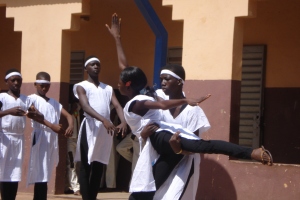 On Saturday morning, we went to visit another of International Service’s projects; a school called EDA. It’s a school for deaf children, and the last ICS cohort paid for them to have dance lessons and they were putting on a performance as part of a dance festival (you can tell I’ve spent too long in a French-speaking country, I keep wanting to spell it ‘danse’). We got there bright and early and watched them dance for about half an hour, and they were absolutely brilliant, we loved it! We also got to look quickly around the school, and saw the mural that the last cohort painted.
On Saturday morning, we went to visit another of International Service’s projects; a school called EDA. It’s a school for deaf children, and the last ICS cohort paid for them to have dance lessons and they were putting on a performance as part of a dance festival (you can tell I’ve spent too long in a French-speaking country, I keep wanting to spell it ‘danse’). We got there bright and early and watched them dance for about half an hour, and they were absolutely brilliant, we loved it! We also got to look quickly around the school, and saw the mural that the last cohort painted.
That evening, we had been invited to a Bonfire Party hosted by a British ex-pat who some of the others had met at the French Institute, and so we headed there about 7ish, armed with toffee apples and vegetable chilli. It’s amazing what you can make out here when you’re innovative! We got there just in time to watch the fireworks, which were brilliant, if a bit unreliable (they headed in directions we didn’t necessarily want them to go haha) and then had a chat with lots of lovely British and American people who had been invited. It was such a lovely evening, one of my favourites here so far. It’s amazing how quickly you crave familiarity, although I don’t think there’s anything normal about sitting around a swimming pool in November, discussing Wallace and Gromit!
We went home fairly early however, as the next day started bright and early. Sunday was Tabaski, and we had to set off to Dolo’s house at 8.30am, in order to get there for the start of the celebrations. Shawana and Sumera went earlier, as they went with them to the Mosque to pray. Dolo works with us for International Service, and very kindly invited us to his house to join his family celebrations, which was so lovely of him.
The tradition for Tabaski is to wear new clothes, so we went all out and bought traditional African clothes. They’re ridiculously cheap to say they’re tailored to exactly fit you; you buy the material for about 4000CFA and then take it to the tailors (this amounts to about £15 altogether!). They then measure you, and make the clothes to fit. This usually doesn’t take very long – a couple of days max – but in the run-up to Tabaski all the tailors are full to bursting, and the day before, many don’t close until the early hours of the morning in an effort to make all of their orders.

Dressed to the nines, we all set off to Dolo’s armed with juice, biscuits, cake and fruit as gifts. I had a minor issue with the top of my outfit, as even though they had altered it the day before, it was still too tight around my chest, so I found it difficult to breathe. Only a minor issue, but made the rest of the day rather uncomfortable haha. We found it quite difficult to get a taxi (think similar to getting one on NYE) but fortunately got two that weren’t too expensive.
Whilst waiting though, we witnessed two sheep being killed, which wasn’t particularly pleasant, but I didn’t look whilst they were doing the actual killing, and then it wasn’t too bad afterwards because the Halal way of slitting their throat is actually very neat and clean, and there wasn’t too much blood or anything. Fortunately we got to Dolo’s after they had killed the sheep, as apparently it didn’t make a very nice noise, and the muscles and things were still twitching after it was dead (sorry to anyone who is squeamish) and so wasn’t very nice to watch.
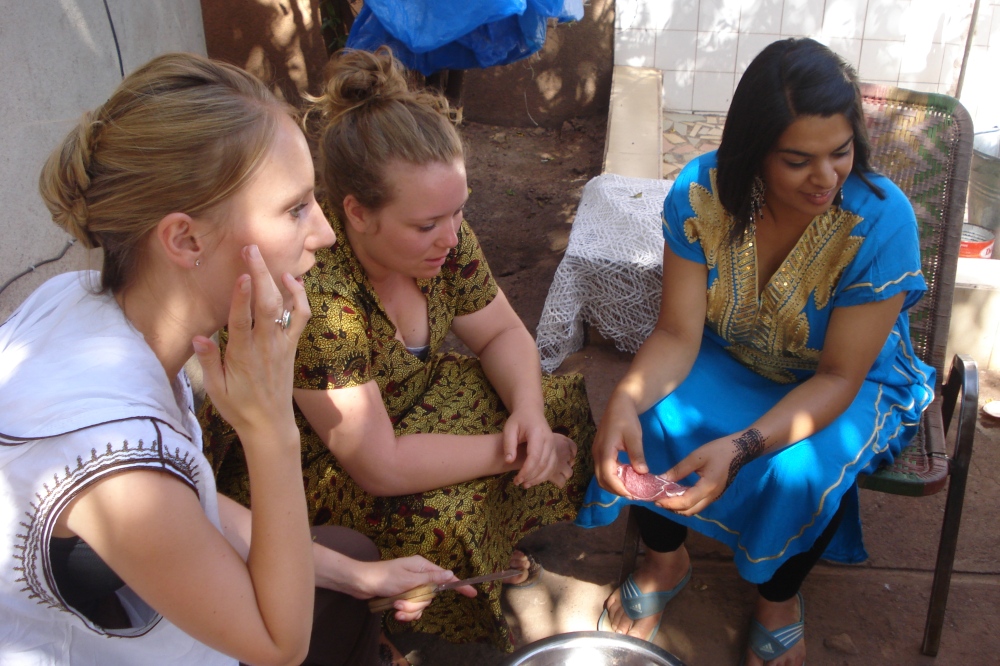 When we got there, the corpse was hanging from a tree, and Adama (Dolo’s nephew, our interpreter at work) and his brother were cleanly skinning it and chopping it up. I surprised myself and didn’t mind watching it when it was dead; it was actually fascinating. They use all of the meat, including the bones, testicles and head. They burn and stew the bones and the head for breakfast the next morning (very glad I wasn’t there!!), and they put the testicles on the BBQ…fortunately didn’t have to eat those either! According to Dolo, they tend to give them to the children
When we got there, the corpse was hanging from a tree, and Adama (Dolo’s nephew, our interpreter at work) and his brother were cleanly skinning it and chopping it up. I surprised myself and didn’t mind watching it when it was dead; it was actually fascinating. They use all of the meat, including the bones, testicles and head. They burn and stew the bones and the head for breakfast the next morning (very glad I wasn’t there!!), and they put the testicles on the BBQ…fortunately didn’t have to eat those either! According to Dolo, they tend to give them to the children
All of Dolo and Adama’s family were very nice and very welcoming, and they put on quite a feast for us. To start with (at about 10am!) we were give the cake and biscuits we had brought, and then salad and chips with a bit of meat (this was whilst they were still cooking Mr. Sheepy, this one had been bought the night before). We then helped to prepare the sheep for the brochettes (like kebabs), and yes, even I did this! I couldn’t bring myself to eat any of Mr. Sheepy though… We then got brought the brochettes, and then some grain called Fonio, which was quite nice, but also covered in meat.

We spent the whole day there, just relaxing and chatting; they have a beautiful house, with a courtyard filled with mango trees, and it was really nice just to be in somebody’s home, as living in the office it doesn’t really feel like a home sometimes. At about 5ish, we then went with Dolo to say hello to some of his neighbours, who were again all really friendly and welcoming. As always, there are a lot of greetings to say in Bambara for such an occasion, and everyone is so nice, and welcoming and happy.
It was really nice to see everyone all dressed up and looking so pretty. We headed home after this however, as we were exhausted; it’s amazing how tiring being in the sun all day is, even if you’re not doing very much. I was also struggling in my restrictive top at this point, and so we headed to the main road to get some taxis; this again was difficult, and the traffic on the way home was ridiculous, as everyone was travelling to see family and friends.
14th November 2011
My favourite part of this week has been our trip to Siby. It’s a town about 45km outside Bamako (I don’t know how far that is in miles, and they don’t use those here) and is one of the most picturesque places ever! It has natural rock formations, waterfalls and hills, and you can basically walk, climb and swim to your heart’s content! We set off from Bamako at 8am on Saturday morning, and caught a bus for 1000CFA (about £1.70).
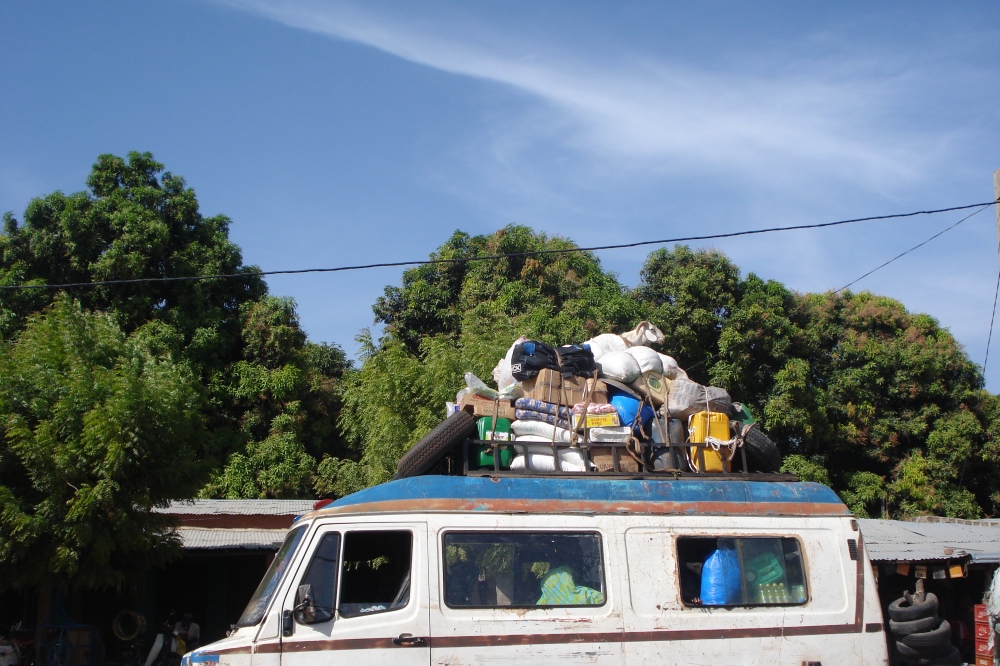 When we got there, the bus was full, so we got on an empty one and waited…and waited…and waited. That’s how buses work here, they don’t have set times, they just go when it’s full, and their definition of full isn’t our definition of full. If there are 10 seats on a bus, you can guarantee there will be about 23 people on there, plus maybe a goat or two on the roof. Because we had waited so long and were quite a way off being full, Shawana and Dave decided to jump off and get a sandwich (I personally had brought an amazing watermelon jam sandwich!).
When we got there, the bus was full, so we got on an empty one and waited…and waited…and waited. That’s how buses work here, they don’t have set times, they just go when it’s full, and their definition of full isn’t our definition of full. If there are 10 seats on a bus, you can guarantee there will be about 23 people on there, plus maybe a goat or two on the roof. Because we had waited so long and were quite a way off being full, Shawana and Dave decided to jump off and get a sandwich (I personally had brought an amazing watermelon jam sandwich!).
Typically though, two minutes after they had got off, the bus filled up and the driver started to drive off! I was desperately trying to save a seat for one of them next to me, despite abuse from the man behind me, and we had to ask the driver to wait while we searched for them. They arrived back 5 minutes later to see all 5 of us sticking our heads out of the windows and gesticulating frantically for them to hurry up. We then didn’t set off for another ten minutes. This is Africa after all.
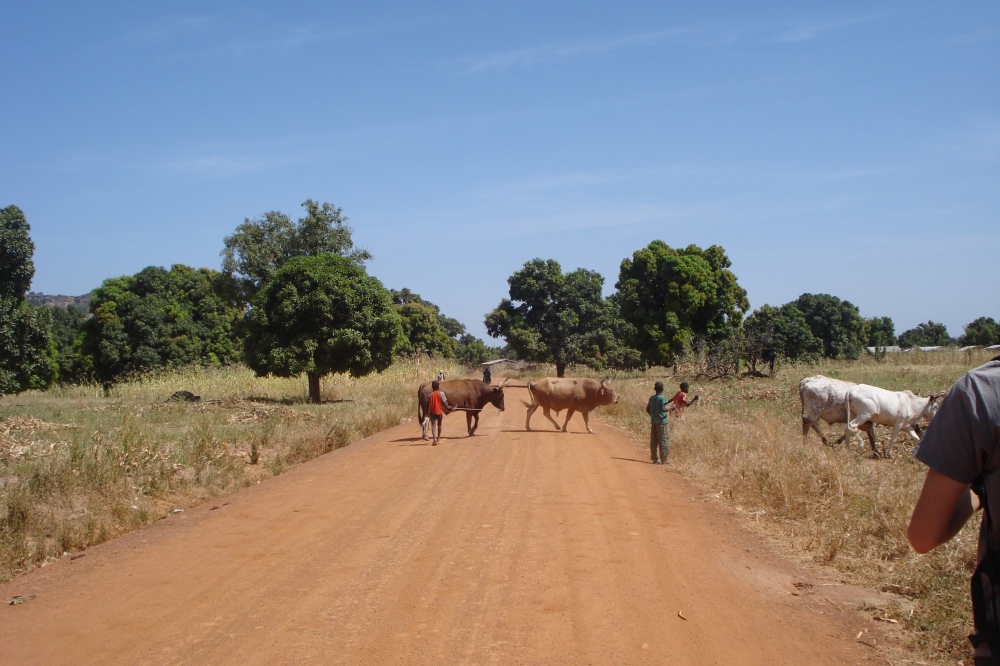 We were debating for a while as to whether to go to the waterfalls, but when we got there, we were so glad that we made the decision to go. It was a waterfall cascading down some big rocks, which we had to climb down, into the most amazing pool. It was crystal clean, and had some quite big fishies in which bit my toes! It was quite cold, but refreshing when it’s 35 degrees outside!
We were debating for a while as to whether to go to the waterfalls, but when we got there, we were so glad that we made the decision to go. It was a waterfall cascading down some big rocks, which we had to climb down, into the most amazing pool. It was crystal clean, and had some quite big fishies in which bit my toes! It was quite cold, but refreshing when it’s 35 degrees outside!
We swam in there for a while, and then climbed up the waterfall, and had a natural shower! People then got out to sit in the sun to dry off for a bit, but I decided to embrace the inner-explorer in me, and climb the big rocks next to us. It was really fun, and I felt quite intrepid as I was climbing through trees and things, but clever me did it in no shoes; fine on the rocks, as it gives you more grip, but once I got to the top, I had to walk through long grass to get back down. This is obviously not a problem in England, but in Africa there are snakes and scorpions. Whoops. I braved it though, and didn’t get bitten yay!
 We then headed back down, and then some of us had decided to stay overnight. It was only 1500CFA (about £3) and we got a cute little hut, which we shared between two of us, which had a double bed and a mosquito net, and the place had a shower and a toilet (a hole in the ground) what more do you need?? We’d decided to stay over because there is also a rock formation which created a natural bridge on top of a hill, and we wanted to walk up to there. It was only 5km there and 5km back, but we had to hire a guide, which was only 1800CFA each. We managed to get a good meal at the hotel, and went for a little walk for an hour, then got an early night, as we knew we’d been woken up early the next day (the huts were practically like sleeping outside, and life starts early here!)
We then headed back down, and then some of us had decided to stay overnight. It was only 1500CFA (about £3) and we got a cute little hut, which we shared between two of us, which had a double bed and a mosquito net, and the place had a shower and a toilet (a hole in the ground) what more do you need?? We’d decided to stay over because there is also a rock formation which created a natural bridge on top of a hill, and we wanted to walk up to there. It was only 5km there and 5km back, but we had to hire a guide, which was only 1800CFA each. We managed to get a good meal at the hotel, and went for a little walk for an hour, then got an early night, as we knew we’d been woken up early the next day (the huts were practically like sleeping outside, and life starts early here!)
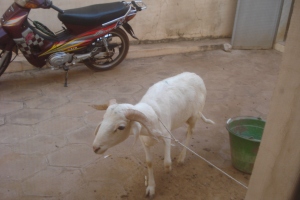 |
| Gareth, the sheep outside my window |
 The city smelt of sheep, sounded like sheep and was generally just filled with sheep; they were loaded on the top of Lorries and Sotramas; people were carrying them (still alive) on motorbikes; there were people herding them by the dozen through the streets. I live in Yorkshire, and I have genuinely never seen so many sheep as I have this week!
The city smelt of sheep, sounded like sheep and was generally just filled with sheep; they were loaded on the top of Lorries and Sotramas; people were carrying them (still alive) on motorbikes; there were people herding them by the dozen through the streets. I live in Yorkshire, and I have genuinely never seen so many sheep as I have this week!On Thursday, we went out to an expensive, but brilliant Indian restaurant in the Hippodrome with Remi, our Canadian friend from work. It was so nice to have vegetables! We then went out for ice cream at our new favourite place; I can definitely recommend the melon and grenadine combination!
On Friday, we celebrated Shawana’s Malian birthday! Every week, we celebrate the ‘birthday’ of one person or another, just to make it a bit more special, and we all go out and do something. For Shawana, we went to the Patisserie for an hour or so, and then went back to their flat for a girly night, and did things like face masks, hair masks, and Sam (who should be a beautician) began doing Mehndi on us (designs with henna) which was amazing! We then tried to watch the film ‘Bridesmaids’ which was on Claire’s hard drive, but her speakers aren’t great to begin with, and there was a sheep bleating very loudly outside the window, so we gave it up for a lost cause.
 On Saturday morning, we went to visit another of International Service’s projects; a school called EDA. It’s a school for deaf children, and the last ICS cohort paid for them to have dance lessons and they were putting on a performance as part of a dance festival (you can tell I’ve spent too long in a French-speaking country, I keep wanting to spell it ‘danse’). We got there bright and early and watched them dance for about half an hour, and they were absolutely brilliant, we loved it! We also got to look quickly around the school, and saw the mural that the last cohort painted.
On Saturday morning, we went to visit another of International Service’s projects; a school called EDA. It’s a school for deaf children, and the last ICS cohort paid for them to have dance lessons and they were putting on a performance as part of a dance festival (you can tell I’ve spent too long in a French-speaking country, I keep wanting to spell it ‘danse’). We got there bright and early and watched them dance for about half an hour, and they were absolutely brilliant, we loved it! We also got to look quickly around the school, and saw the mural that the last cohort painted.That evening, we had been invited to a Bonfire Party hosted by a British ex-pat who some of the others had met at the French Institute, and so we headed there about 7ish, armed with toffee apples and vegetable chilli. It’s amazing what you can make out here when you’re innovative! We got there just in time to watch the fireworks, which were brilliant, if a bit unreliable (they headed in directions we didn’t necessarily want them to go haha) and then had a chat with lots of lovely British and American people who had been invited. It was such a lovely evening, one of my favourites here so far. It’s amazing how quickly you crave familiarity, although I don’t think there’s anything normal about sitting around a swimming pool in November, discussing Wallace and Gromit!
We went home fairly early however, as the next day started bright and early. Sunday was Tabaski, and we had to set off to Dolo’s house at 8.30am, in order to get there for the start of the celebrations. Shawana and Sumera went earlier, as they went with them to the Mosque to pray. Dolo works with us for International Service, and very kindly invited us to his house to join his family celebrations, which was so lovely of him.
The tradition for Tabaski is to wear new clothes, so we went all out and bought traditional African clothes. They’re ridiculously cheap to say they’re tailored to exactly fit you; you buy the material for about 4000CFA and then take it to the tailors (this amounts to about £15 altogether!). They then measure you, and make the clothes to fit. This usually doesn’t take very long – a couple of days max – but in the run-up to Tabaski all the tailors are full to bursting, and the day before, many don’t close until the early hours of the morning in an effort to make all of their orders.

Dressed to the nines, we all set off to Dolo’s armed with juice, biscuits, cake and fruit as gifts. I had a minor issue with the top of my outfit, as even though they had altered it the day before, it was still too tight around my chest, so I found it difficult to breathe. Only a minor issue, but made the rest of the day rather uncomfortable haha. We found it quite difficult to get a taxi (think similar to getting one on NYE) but fortunately got two that weren’t too expensive.
Whilst waiting though, we witnessed two sheep being killed, which wasn’t particularly pleasant, but I didn’t look whilst they were doing the actual killing, and then it wasn’t too bad afterwards because the Halal way of slitting their throat is actually very neat and clean, and there wasn’t too much blood or anything. Fortunately we got to Dolo’s after they had killed the sheep, as apparently it didn’t make a very nice noise, and the muscles and things were still twitching after it was dead (sorry to anyone who is squeamish) and so wasn’t very nice to watch.
 When we got there, the corpse was hanging from a tree, and Adama (Dolo’s nephew, our interpreter at work) and his brother were cleanly skinning it and chopping it up. I surprised myself and didn’t mind watching it when it was dead; it was actually fascinating. They use all of the meat, including the bones, testicles and head. They burn and stew the bones and the head for breakfast the next morning (very glad I wasn’t there!!), and they put the testicles on the BBQ…fortunately didn’t have to eat those either! According to Dolo, they tend to give them to the children
When we got there, the corpse was hanging from a tree, and Adama (Dolo’s nephew, our interpreter at work) and his brother were cleanly skinning it and chopping it up. I surprised myself and didn’t mind watching it when it was dead; it was actually fascinating. They use all of the meat, including the bones, testicles and head. They burn and stew the bones and the head for breakfast the next morning (very glad I wasn’t there!!), and they put the testicles on the BBQ…fortunately didn’t have to eat those either! According to Dolo, they tend to give them to the childrenAll of Dolo and Adama’s family were very nice and very welcoming, and they put on quite a feast for us. To start with (at about 10am!) we were give the cake and biscuits we had brought, and then salad and chips with a bit of meat (this was whilst they were still cooking Mr. Sheepy, this one had been bought the night before). We then helped to prepare the sheep for the brochettes (like kebabs), and yes, even I did this! I couldn’t bring myself to eat any of Mr. Sheepy though… We then got brought the brochettes, and then some grain called Fonio, which was quite nice, but also covered in meat.

We spent the whole day there, just relaxing and chatting; they have a beautiful house, with a courtyard filled with mango trees, and it was really nice just to be in somebody’s home, as living in the office it doesn’t really feel like a home sometimes. At about 5ish, we then went with Dolo to say hello to some of his neighbours, who were again all really friendly and welcoming. As always, there are a lot of greetings to say in Bambara for such an occasion, and everyone is so nice, and welcoming and happy.
It was really nice to see everyone all dressed up and looking so pretty. We headed home after this however, as we were exhausted; it’s amazing how tiring being in the sun all day is, even if you’re not doing very much. I was also struggling in my restrictive top at this point, and so we headed to the main road to get some taxis; this again was difficult, and the traffic on the way home was ridiculous, as everyone was travelling to see family and friends.
14th November 2011
My favourite part of this week has been our trip to Siby. It’s a town about 45km outside Bamako (I don’t know how far that is in miles, and they don’t use those here) and is one of the most picturesque places ever! It has natural rock formations, waterfalls and hills, and you can basically walk, climb and swim to your heart’s content! We set off from Bamako at 8am on Saturday morning, and caught a bus for 1000CFA (about £1.70).
 When we got there, the bus was full, so we got on an empty one and waited…and waited…and waited. That’s how buses work here, they don’t have set times, they just go when it’s full, and their definition of full isn’t our definition of full. If there are 10 seats on a bus, you can guarantee there will be about 23 people on there, plus maybe a goat or two on the roof. Because we had waited so long and were quite a way off being full, Shawana and Dave decided to jump off and get a sandwich (I personally had brought an amazing watermelon jam sandwich!).
When we got there, the bus was full, so we got on an empty one and waited…and waited…and waited. That’s how buses work here, they don’t have set times, they just go when it’s full, and their definition of full isn’t our definition of full. If there are 10 seats on a bus, you can guarantee there will be about 23 people on there, plus maybe a goat or two on the roof. Because we had waited so long and were quite a way off being full, Shawana and Dave decided to jump off and get a sandwich (I personally had brought an amazing watermelon jam sandwich!). Typically though, two minutes after they had got off, the bus filled up and the driver started to drive off! I was desperately trying to save a seat for one of them next to me, despite abuse from the man behind me, and we had to ask the driver to wait while we searched for them. They arrived back 5 minutes later to see all 5 of us sticking our heads out of the windows and gesticulating frantically for them to hurry up. We then didn’t set off for another ten minutes. This is Africa after all.
 We were debating for a while as to whether to go to the waterfalls, but when we got there, we were so glad that we made the decision to go. It was a waterfall cascading down some big rocks, which we had to climb down, into the most amazing pool. It was crystal clean, and had some quite big fishies in which bit my toes! It was quite cold, but refreshing when it’s 35 degrees outside!
We were debating for a while as to whether to go to the waterfalls, but when we got there, we were so glad that we made the decision to go. It was a waterfall cascading down some big rocks, which we had to climb down, into the most amazing pool. It was crystal clean, and had some quite big fishies in which bit my toes! It was quite cold, but refreshing when it’s 35 degrees outside!We swam in there for a while, and then climbed up the waterfall, and had a natural shower! People then got out to sit in the sun to dry off for a bit, but I decided to embrace the inner-explorer in me, and climb the big rocks next to us. It was really fun, and I felt quite intrepid as I was climbing through trees and things, but clever me did it in no shoes; fine on the rocks, as it gives you more grip, but once I got to the top, I had to walk through long grass to get back down. This is obviously not a problem in England, but in Africa there are snakes and scorpions. Whoops. I braved it though, and didn’t get bitten yay!
 We then headed back down, and then some of us had decided to stay overnight. It was only 1500CFA (about £3) and we got a cute little hut, which we shared between two of us, which had a double bed and a mosquito net, and the place had a shower and a toilet (a hole in the ground) what more do you need?? We’d decided to stay over because there is also a rock formation which created a natural bridge on top of a hill, and we wanted to walk up to there. It was only 5km there and 5km back, but we had to hire a guide, which was only 1800CFA each. We managed to get a good meal at the hotel, and went for a little walk for an hour, then got an early night, as we knew we’d been woken up early the next day (the huts were practically like sleeping outside, and life starts early here!)
We then headed back down, and then some of us had decided to stay overnight. It was only 1500CFA (about £3) and we got a cute little hut, which we shared between two of us, which had a double bed and a mosquito net, and the place had a shower and a toilet (a hole in the ground) what more do you need?? We’d decided to stay over because there is also a rock formation which created a natural bridge on top of a hill, and we wanted to walk up to there. It was only 5km there and 5km back, but we had to hire a guide, which was only 1800CFA each. We managed to get a good meal at the hotel, and went for a little walk for an hour, then got an early night, as we knew we’d been woken up early the next day (the huts were practically like sleeping outside, and life starts early here!)

Ten things I will miss about Africa;
- The people – Malians and ex-pats/volunteers alike, everyone is so friendly and welcoming. Although there we do receive a bit of overly-affectionate attention and occasionally get ripped off because we’re ‘Tubabus’ the general reaction from people is lovely, and I haven’t once been concerned for my safety whilst I’ve been out here in that respect
- The sun. In England I dread the summer; I am just not built to deal with heat. Here I’ve adapted surprisingly quickly and often feel comfortable walking around when it’s around 35 degrees outside. I’m not looking forward to the cold back home now.
- The novelty of seeing something new every day. Be it goats on top of a Sotrama, people dancing in the street, or a donkey crossing the road, there is always something new and interesting to look at here, and I’ll miss the grey androgyny of the UK on my return I think.
- The cheapness of taxis and being able to negotiate the price; when I get home I’ll forget how to use a taxi with a meter!
- The simplicity of life. Here, every morning I have a cold shower. When I wash my hair, it dries naturally, no hairdryer or straighteners, and with the exception of the occasional bit of mascara I haven’t worn make-up for almost three months, therefore it takes me a maximum of 20 minutes to get ready.
- The language. I’ve always loved French, and am determined to one day become fluent, even if I’m 50 before I achieve this goal. I also really like Bambara and, even though I can’t speak much, it’s really friendly and everyone constantly greets each other.
- Not being materialistic. Here, I haven’t missed things such as my iPhone at all, although I’m never away from it at home. I know I’ll get sucked back in once I return, but it’s nice for the moment to be without.
- Africa. I don’t know how to explain it unless you’ve been. Think of stereotypical Africa in your head – that’s pretty much it here in Mali, if you replace the lions and hyenas with goats, sheep and cows. Everything is busy and dusty, but laid-back and happy.
- The colours. Everyone here is so well dressed; quite conservatively normally, but in beautiful, brightly coloured African fabric, and it’s always so nice and interesting to look at as opposed to the samey-high street look back home.
- The food. To some extent. I quite like some of the things they have here; they always flavour things very nicely, and we’ve found some quite nice places to eat.
Ten things I won’t miss about Africa;
- Battling with the shower every morning because the plumbing isn’t great, and if I’m not super-quick when I wash my hair (even though I turn the water off whilst rubbing shampoo into my hair etc) I spend 20 minutes afterwards with a brush trying to stop the water from flooding into my room because it won’t drain
- The mosquitoes. I have been very lucky and they don’t seem to like me very much at all; I haven’t had to use my Deet since the first month. They are very annoying however, and I’ll be glad to not have to think about them, and to not sleep under my mosquito net.
- My bed. I didn’t mind it/quite liked it for the first two months, but now I’m craving (not mine, because mine at home is horrible too, but my stepsisters’) bed back at home. This one here is like sleeping on the floor with a bit of padding and my pillow is literally like a brick. No exaggeration. I want to sleep under a duvet here; normally I can’t sleep without something over me, but here it’s too hot sometimes for even my sleeping bag liner.
- The food. I don’t mind it, and can usually find things I like, but everything here is so samey. I want to be able to go to a supermarket and pick up some ingredients, and have a selection of things in, then be able to choose what to cook. I also want fruit and vegetables. And to not have a carbohydrate for every meal.
- Being ripped off. We don’t get it too much to be fair, and I can understand why they do it, but it’s really irritating for people to just assume you’re made of money because you’re white. A taxi-man the other day tried to charge is 5000CFA for a journey we normally only pay 1500CFA for, just because we were Tubabus.
- Being called a Tubabu. It’s not malicious in the slightest, but just occasionally it’s slightly exhausting to be surrounded by mobs of children every time you want to walk to the shop or go out for dinner, and to be noticed everywhere you go.
- Working on Mali-time. Our work is going quite slowly, because things don’t happen when they say they will, or they’ll say we can have the car, then when we turn up someone else will have it. Frustrating.
- The sun. Although I’ve adapted well, autumn and winter are my favourite seasons back home, and I’m sad I’m missing them. I also kind of miss all the build up to Christmas because I’m a child at heart.
- The dust/fumes/pollution. Here in Bamako, as it’s a big city, it’s constantly busy and full of people and traffic. Cars here do not have filters on their exhausts so the fumes are horrific. Add plumes of dust and some open sewers into the mix, and I can’t wait for the (relatively) clean air of London. My lungs won’t know what’s hit them when I get to Yorkshire!
- Being home. No matter how much I’ll travel and see the world, and believe that everyone should do so, I’ll always be a home girl at heart.
We had planned to go to a town called Sikasso the weekend just gone, but the plans fell through as people were ill and others had money issues. This turned out to be rather a good thing as on Thursday, two French people were kidnapped at a town called Hombari, and on Friday, four Europeans were kidnapped from Tombouctou.
The kidnapping in Hombari was the first south of the Niger River, and the ones in Tombouctou were the first in that area. The reasoning behind it is interesting I think; there was a meeting with a group of Muslims (I can’t remember which one) who openly stated that ‘All Muslims would stand with the ‘southern’ government.’ (i.e. the main government of Mali situated in Bamako). This did not sit well with AQIM (Al-Qaeda in the Islamic Maghreb), who are the group of rebels in the north who are usually responsible for the kidnappings.
They believe strongly in annexing the south from the north, and are completely opposed to the ‘southern’ government. The ‘best,’ or at least most attention-seeking way to show their outrage is to kidnap Westerners, because not only does it attract media attention, it also affects the economy of the country as tourism declines; the whole of Tombouctou was evacuated of tourists and masses of the country is already a red-zone to most white foreigners. This way the government is more likely to take action.
The kidnapping in Hombari was the first south of the Niger River, and the ones in Tombouctou were the first in that area. The reasoning behind it is interesting I think; there was a meeting with a group of Muslims (I can’t remember which one) who openly stated that ‘All Muslims would stand with the ‘southern’ government.’ (i.e. the main government of Mali situated in Bamako). This did not sit well with AQIM (Al-Qaeda in the Islamic Maghreb), who are the group of rebels in the north who are usually responsible for the kidnappings.
They believe strongly in annexing the south from the north, and are completely opposed to the ‘southern’ government. The ‘best,’ or at least most attention-seeking way to show their outrage is to kidnap Westerners, because not only does it attract media attention, it also affects the economy of the country as tourism declines; the whole of Tombouctou was evacuated of tourists and masses of the country is already a red-zone to most white foreigners. This way the government is more likely to take action.

7th December 2011
We had to go into work for an important meeting with Mme. Coulibaly about our catalogue. I’d woken up that morning however, with a sore stomach and generally not feeling very well. I assumed that it was just normal for Africa however and, although I couldn’t eat my Nutella and banana sandwich that morning (sad times) headed to work feeling fairly perky.
As per usual however, we had to sit around waiting for a couple of hours, and as time wore on, I started feeling generally rubbish; I had a headache, my body was aching, I had a temperature, and eventually I had goosebumps even though it was around 30 degrees! At this point, Alice very kindly walked home with me so that I could take my temperature and lie down. My temperature was a bit high, but still within the normal range, so I just assumed it was nothing, took some paracetamol and chilled out for a bit.
As per usual however, we had to sit around waiting for a couple of hours, and as time wore on, I started feeling generally rubbish; I had a headache, my body was aching, I had a temperature, and eventually I had goosebumps even though it was around 30 degrees! At this point, Alice very kindly walked home with me so that I could take my temperature and lie down. My temperature was a bit high, but still within the normal range, so I just assumed it was nothing, took some paracetamol and chilled out for a bit.
When my temperature went up to 38 a couple of times however, I was a bit wary, and went to as the others what I should do; we have a rule that, whenever someone has a high temperature or a fever, they go to the Clinic just to be sure, as it’s the first sign of a lot of diseases out here. I was reluctant to go however, as it was only just 38 and kept fluctuating, and I was sure that it was just my body fighting off an infection; I didn’t feel too bad in the grand scheme of things. Also, we had planned to have a Christmas Carol concert on the roof that evening, and I knew that if I had to go to the Clinic I would miss it. I was bullied into going however, and Dave came with me.
I explained to the English-speaking doctor (very arrogant, but the best doctor in the place) my symptoms and he sent me for a blood test. After about 20 minutes the results came out, and I sneaked a look as I waited for the doctor again; positive. Damnit.
I knew in my heart of hearts that that was probably what was wrong with me because, having Googled the symptoms I could tick off 7/10 of them. Still didn’t fancy an overnight stay in the hospital though.
Very fortunately, because people had made me go, they had caught it in the very early stages, and I just needed lots of rest and some strong drugs and I’d be right as rain again. As the Doctor said, “It is just ‘little’ malaria” so no hospital stay required! I wouldn’t have minded really, as it’s a really nice Clinic (the best in Mali) but if you can avoid a stay in hospital then you do!
I explained to the English-speaking doctor (very arrogant, but the best doctor in the place) my symptoms and he sent me for a blood test. After about 20 minutes the results came out, and I sneaked a look as I waited for the doctor again; positive. Damnit.
I knew in my heart of hearts that that was probably what was wrong with me because, having Googled the symptoms I could tick off 7/10 of them. Still didn’t fancy an overnight stay in the hospital though.
Very fortunately, because people had made me go, they had caught it in the very early stages, and I just needed lots of rest and some strong drugs and I’d be right as rain again. As the Doctor said, “It is just ‘little’ malaria” so no hospital stay required! I wouldn’t have minded really, as it’s a really nice Clinic (the best in Mali) but if you can avoid a stay in hospital then you do!
I spent the next day feeling fairly rubbish, but ok to say I had malaria! It felt a bit like a very mild case of the flu and I completely lost my appetite. Everyone looked after me really well though, and I soon recovered, though it took a few days before I was back to normal.
On Monday, it was International Volunteers Day around the world. Mali really got into celebrating this, as they have a lot of volunteers here, and Dolo had spent lots of time, with lots of other organisations, organising a celebratory day. It kicked off at 7.30 as we had to go and set up our stall; then we went into a big conference room with organisations such as the Red Cross, Peace Corps and the Scouts (yep, they have Scouts here in Mali). The President and the Prime Minister were here, and we had to stand up every time the President did, which was a bit odd.
We sat through about two hours of speeches, interspersed with a random rap from an apparently famous Malian rapper, who lip-synced horribly to a track. Alice and Shawana then went downstairs before us, and along with Dolo and Fred, got to meet the President! We all stood behind, trying to take photos over peoples’ heads and avoiding the scary-looking military men. After this, we had a football match between the different organisations; Lucy, Sophie, Dave, James, Adama and Dan all played and the blues won (a team with Dan and Adama on). That evening we were supposed to have a Cultural Night at the Maison des Jeunes but we were all exhausted from the day, and it wasn’t great so we all came home quite early.
We sat through about two hours of speeches, interspersed with a random rap from an apparently famous Malian rapper, who lip-synced horribly to a track. Alice and Shawana then went downstairs before us, and along with Dolo and Fred, got to meet the President! We all stood behind, trying to take photos over peoples’ heads and avoiding the scary-looking military men. After this, we had a football match between the different organisations; Lucy, Sophie, Dave, James, Adama and Dan all played and the blues won (a team with Dan and Adama on). That evening we were supposed to have a Cultural Night at the Maison des Jeunes but we were all exhausted from the day, and it wasn’t great so we all came home quite early.

All in all, I had an amazing three months in Mali! It was difficult at times, but it's now one of my favourite places in the world, and I hope to go back soon!
Subscribe to:
Posts (Atom)






















